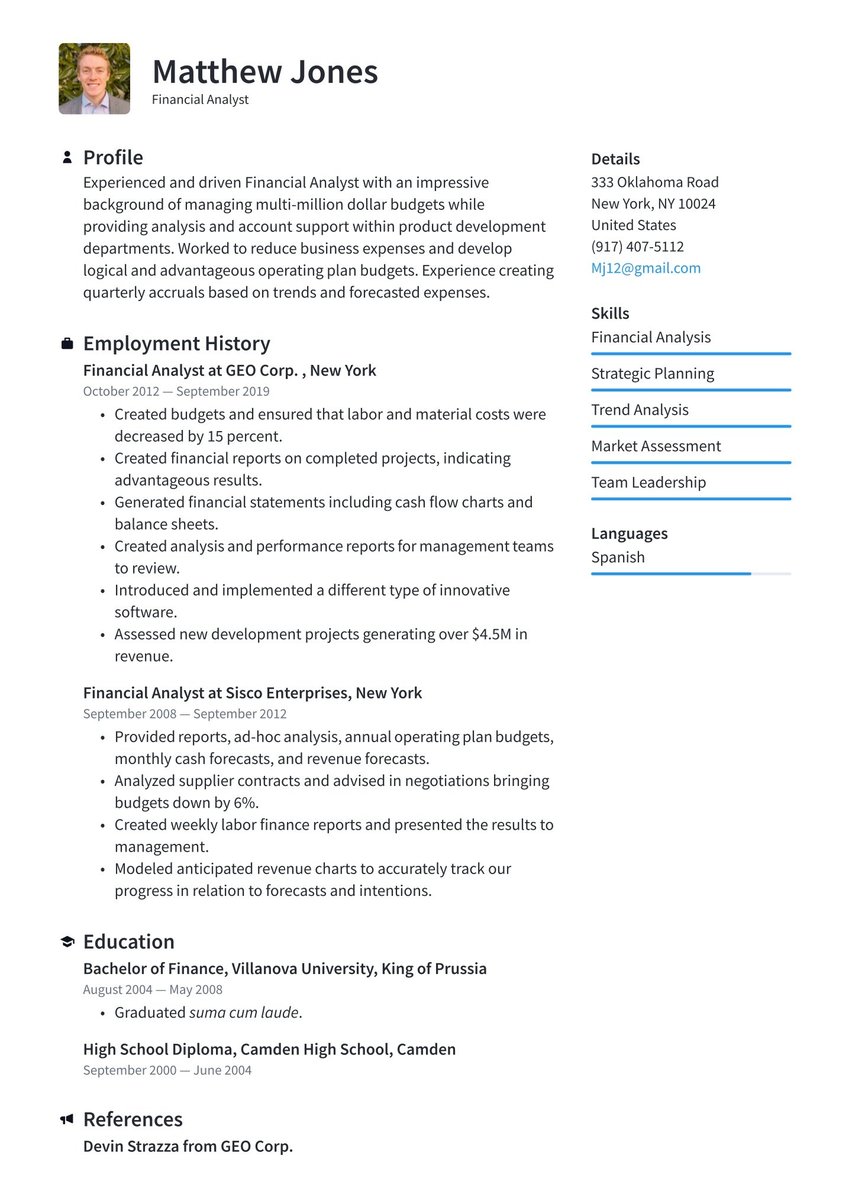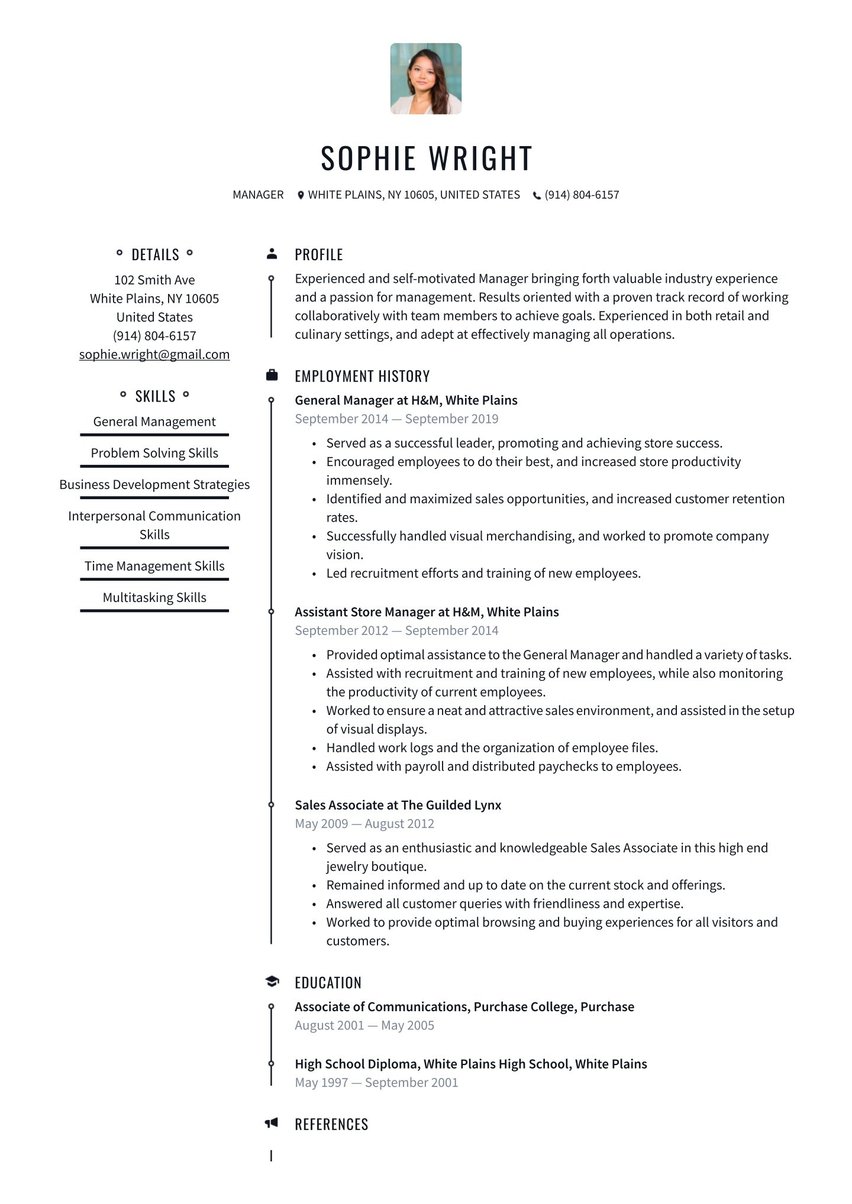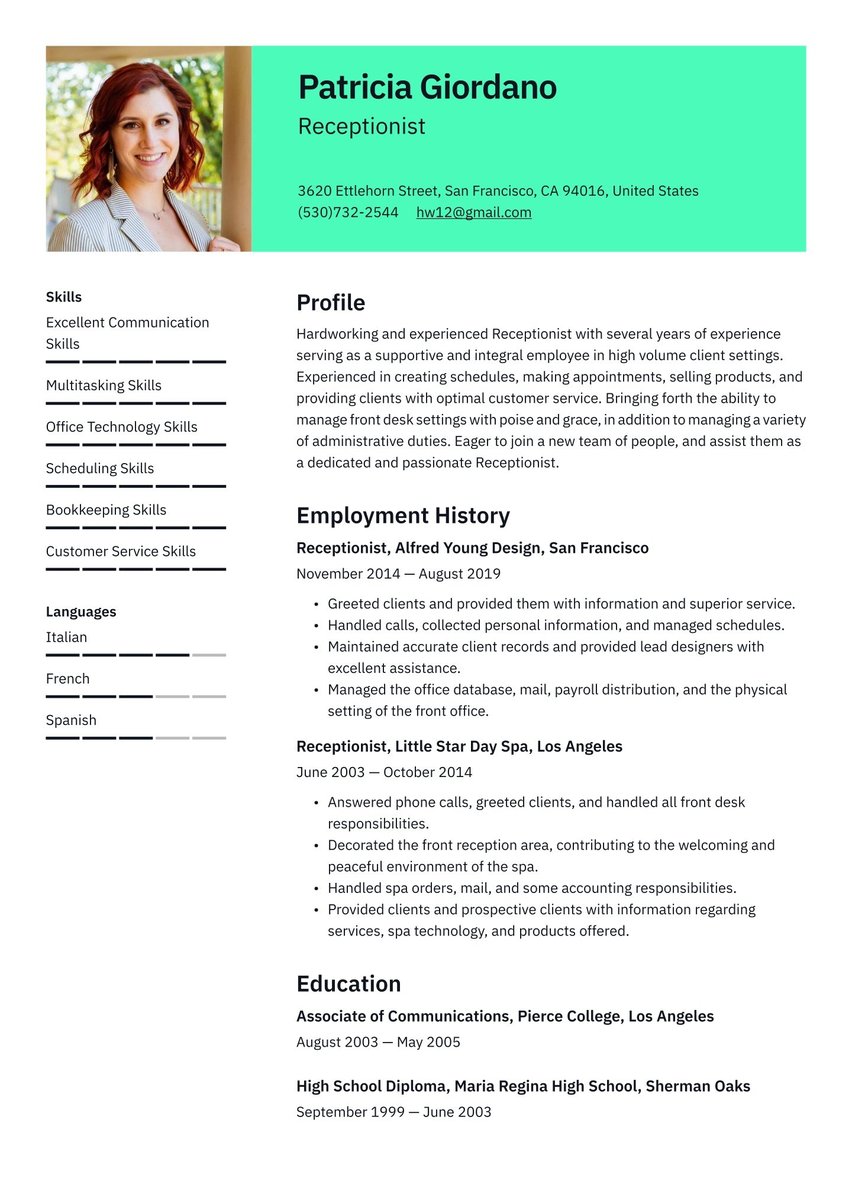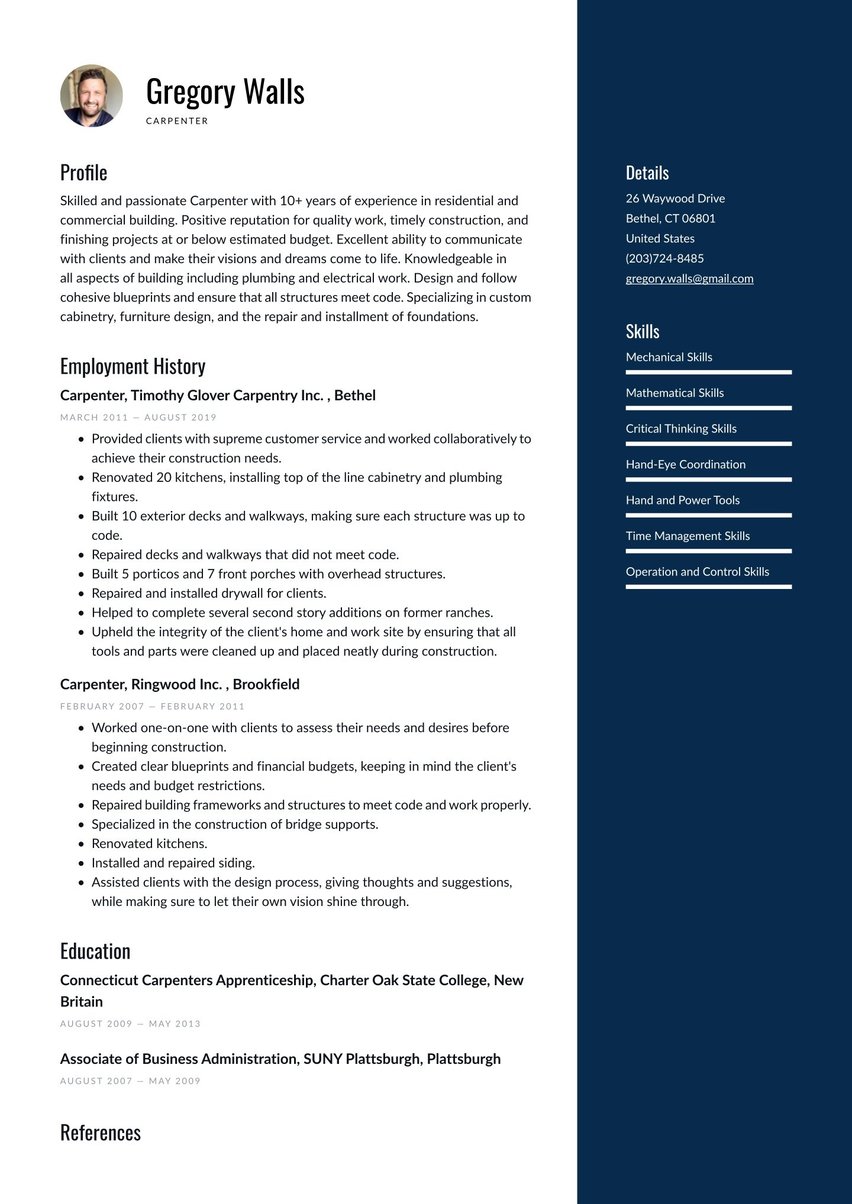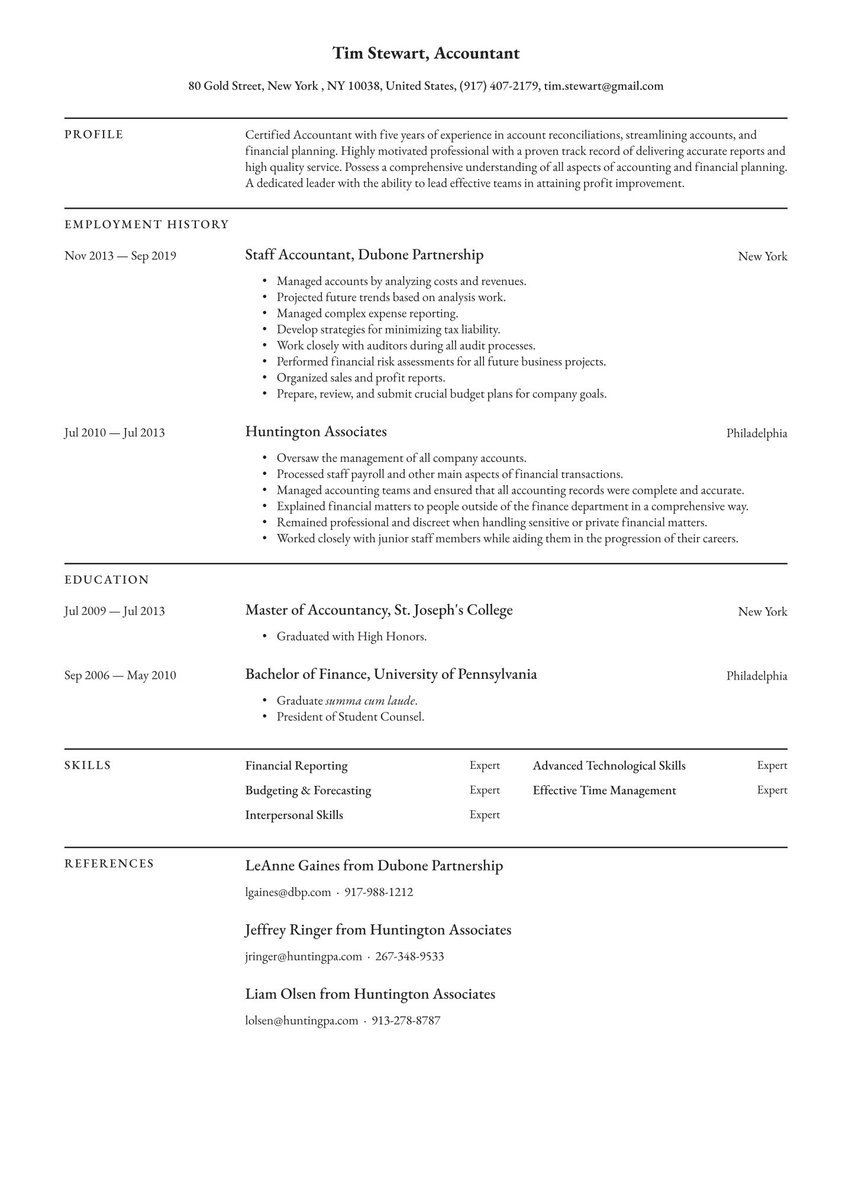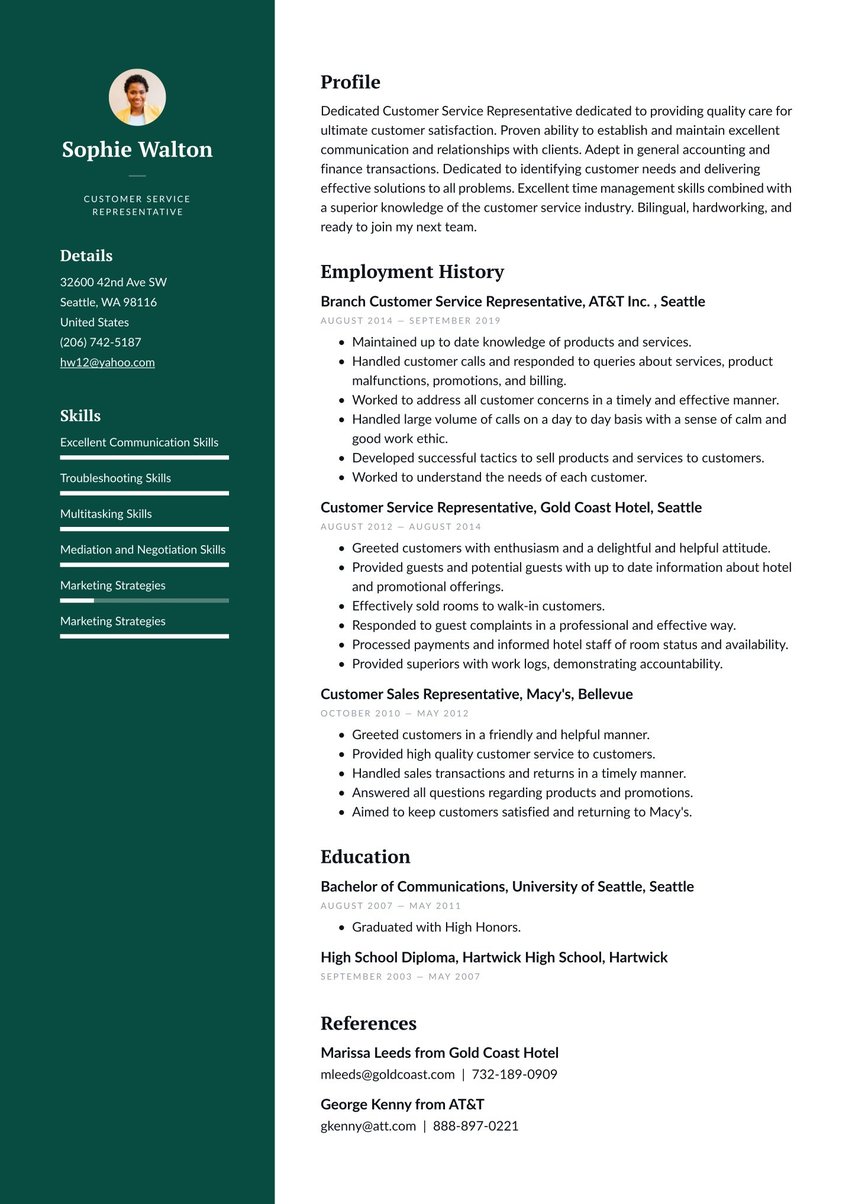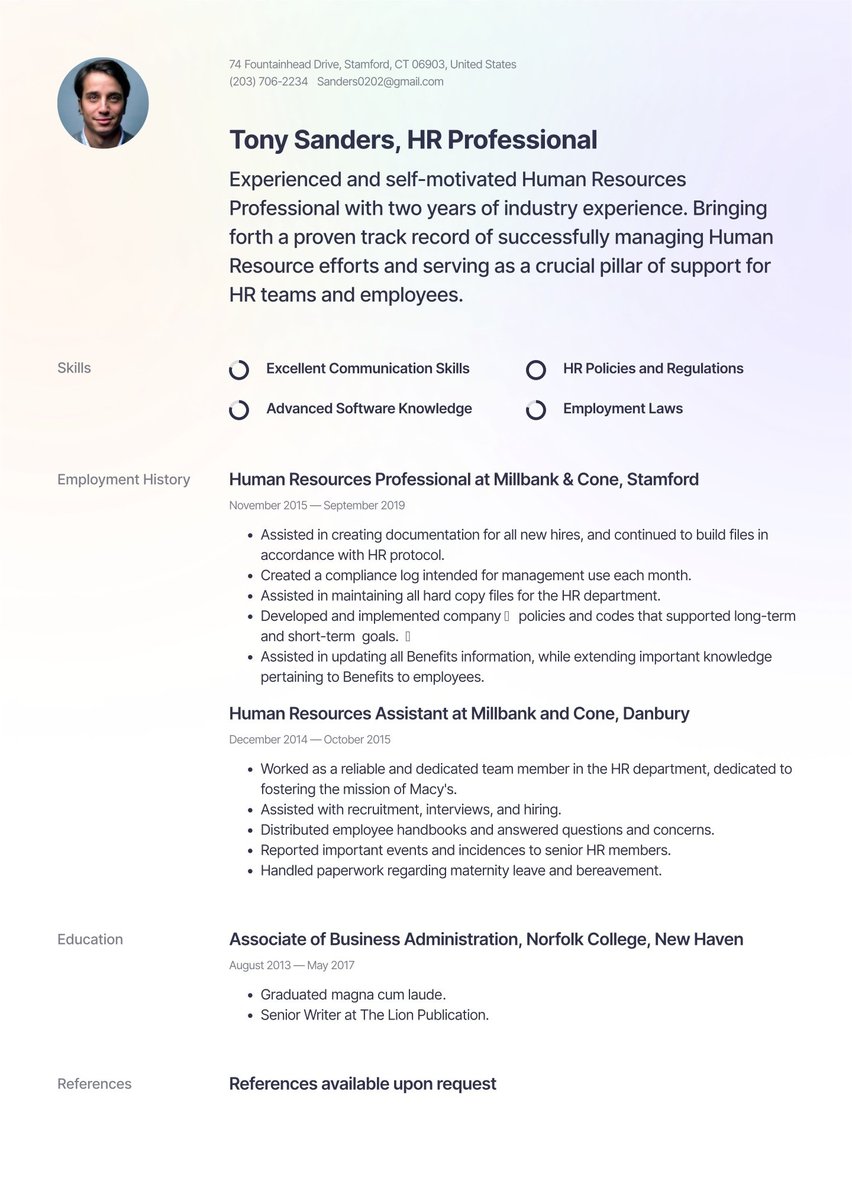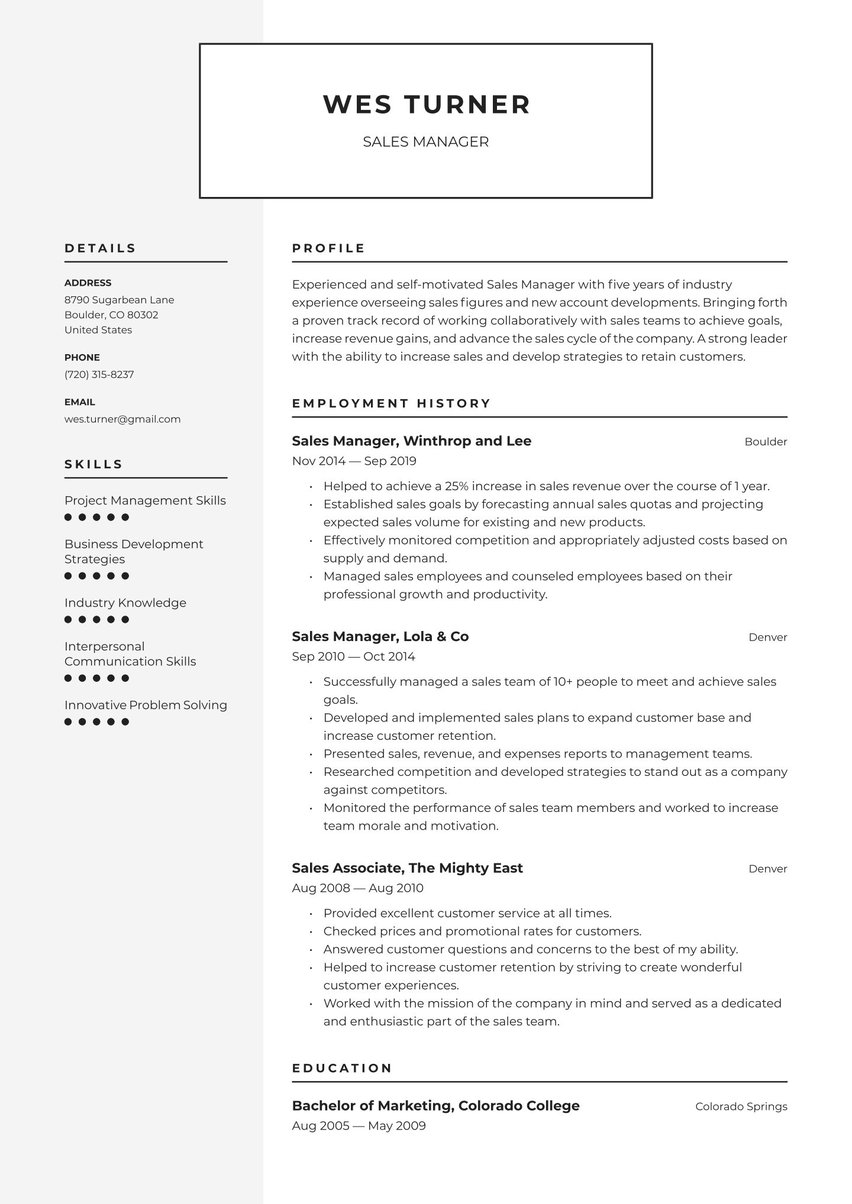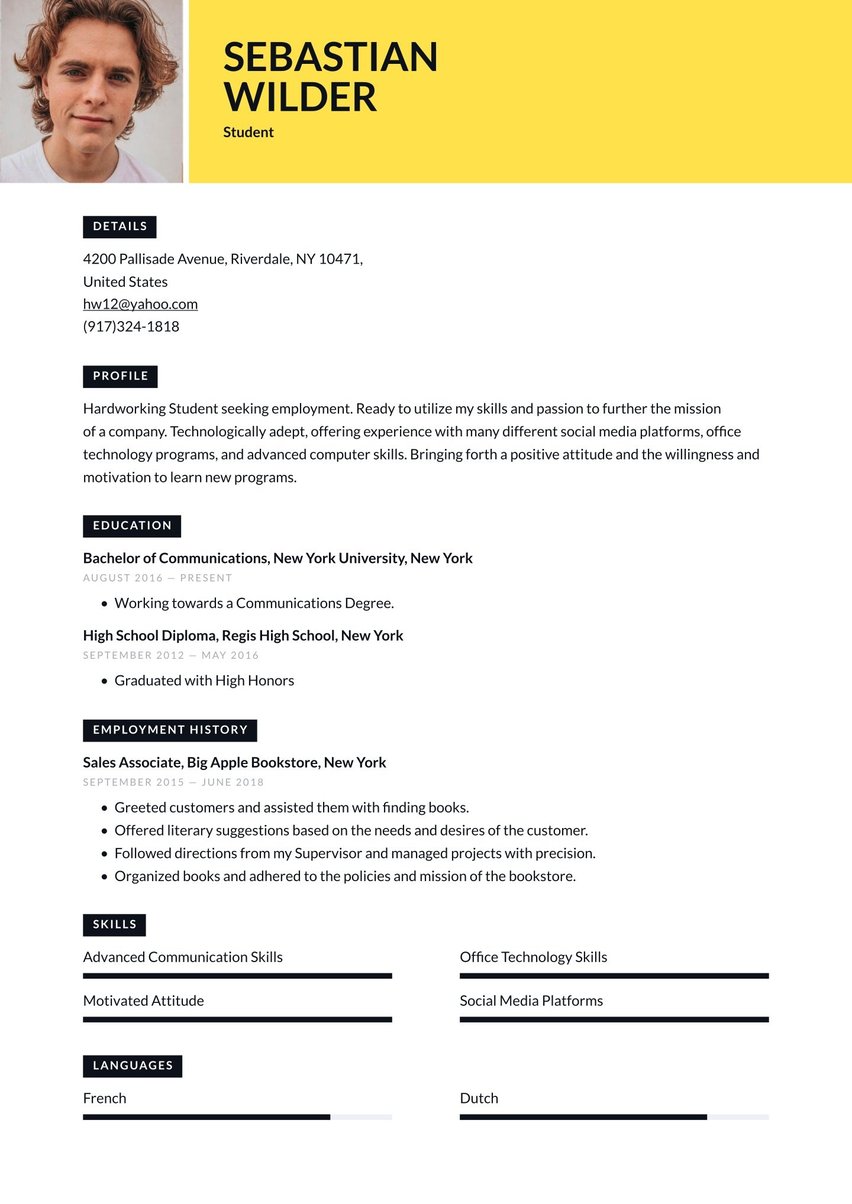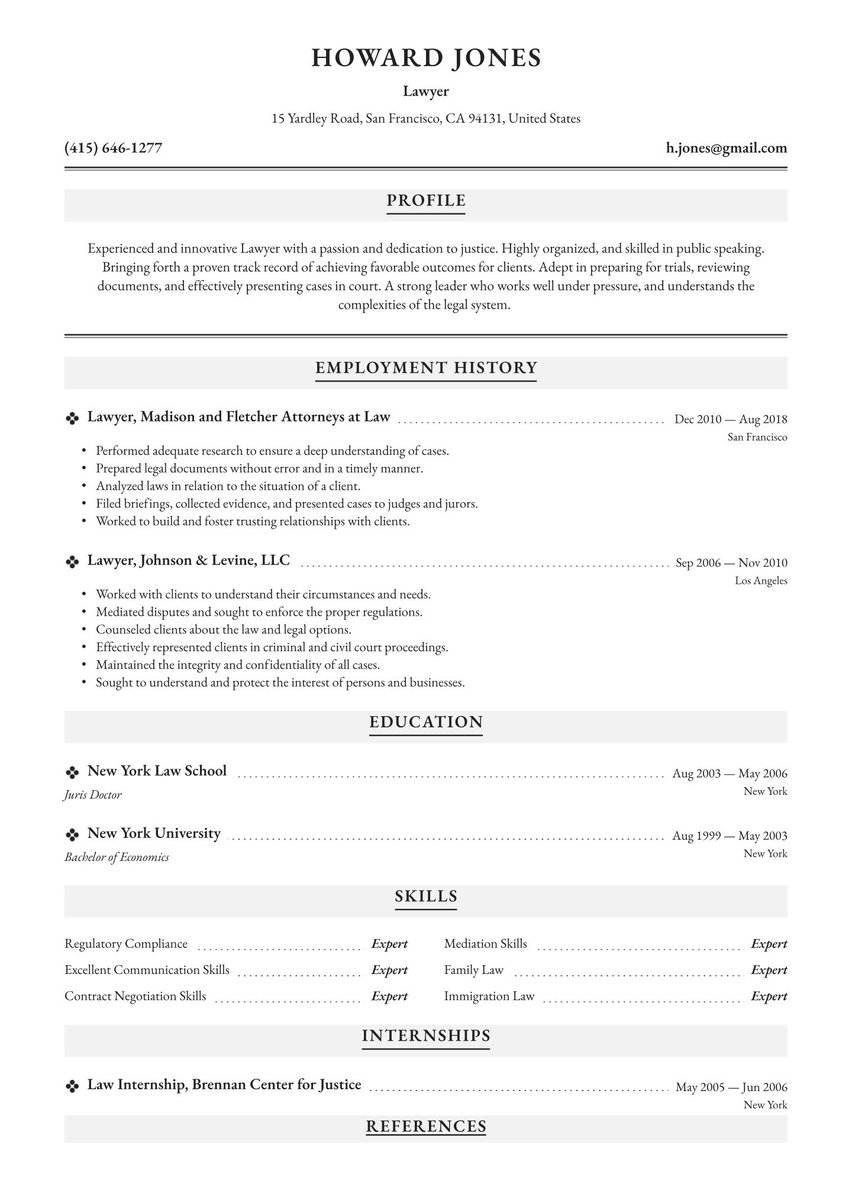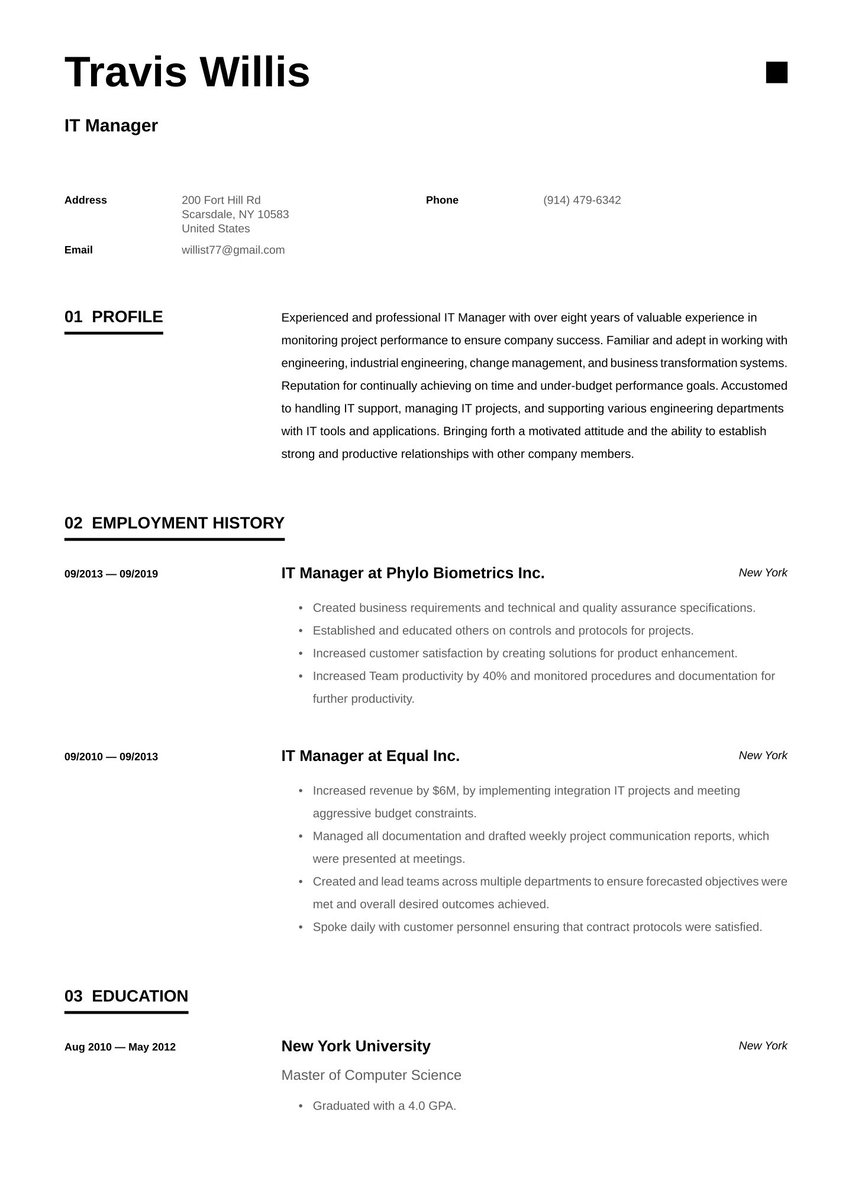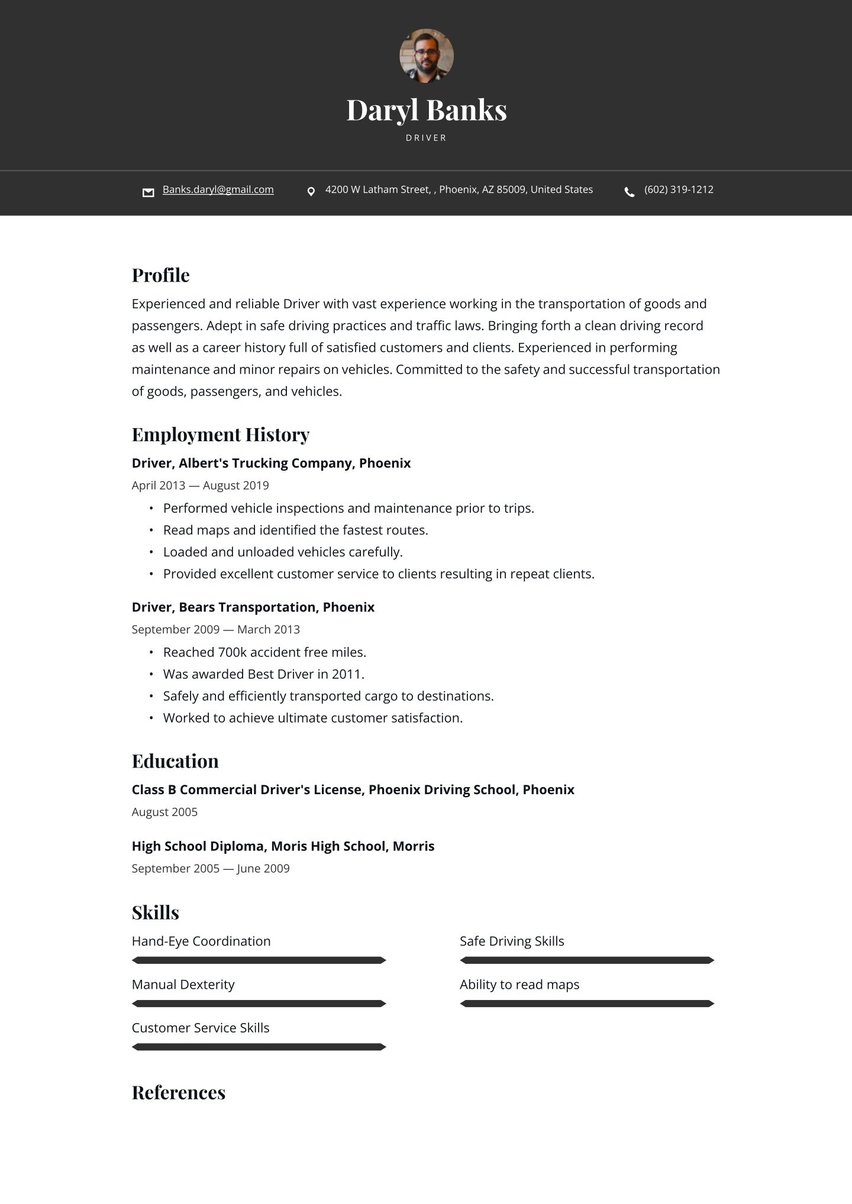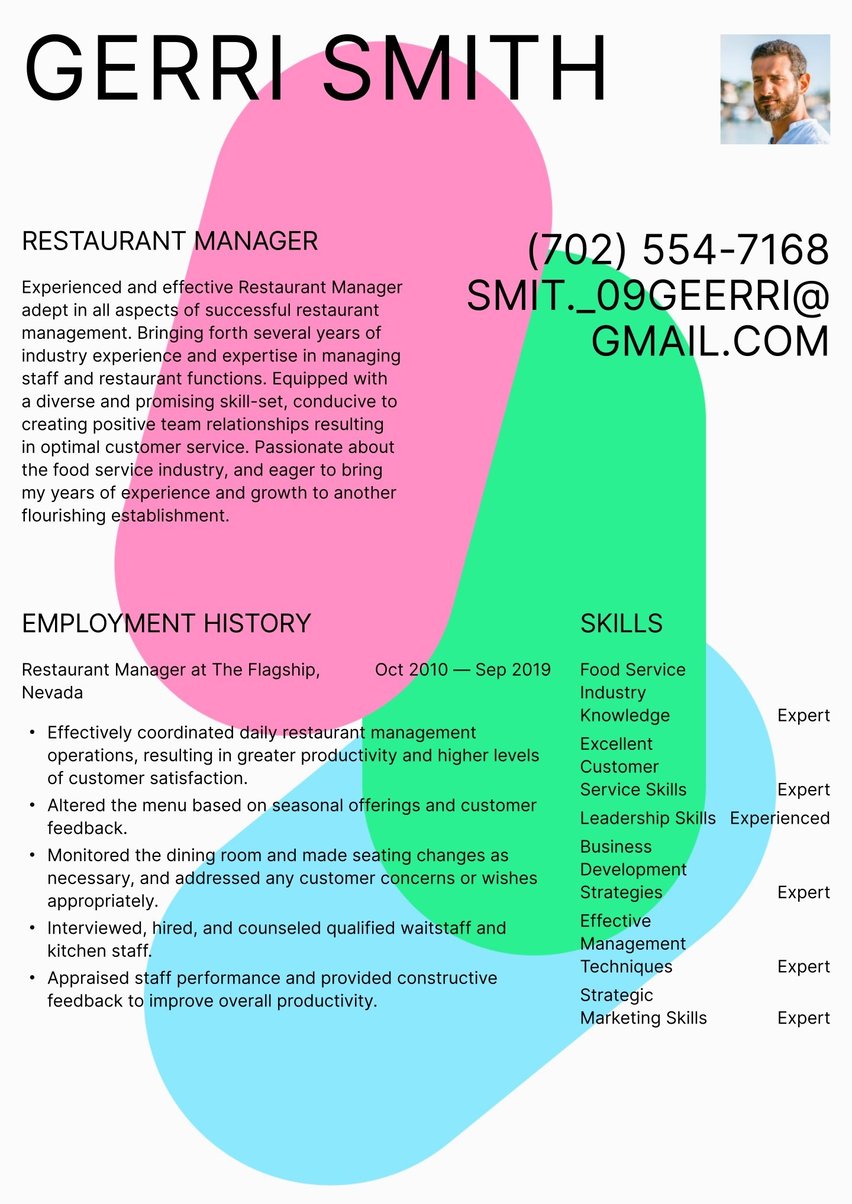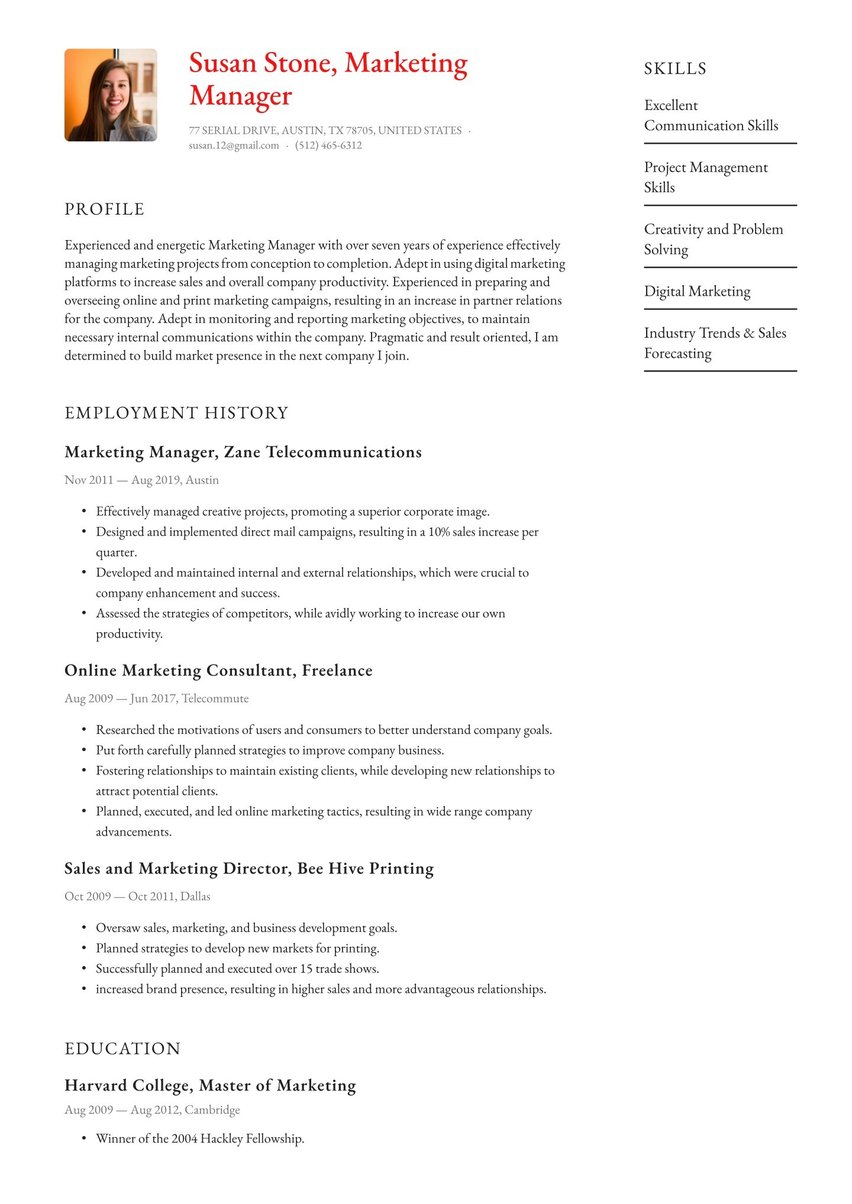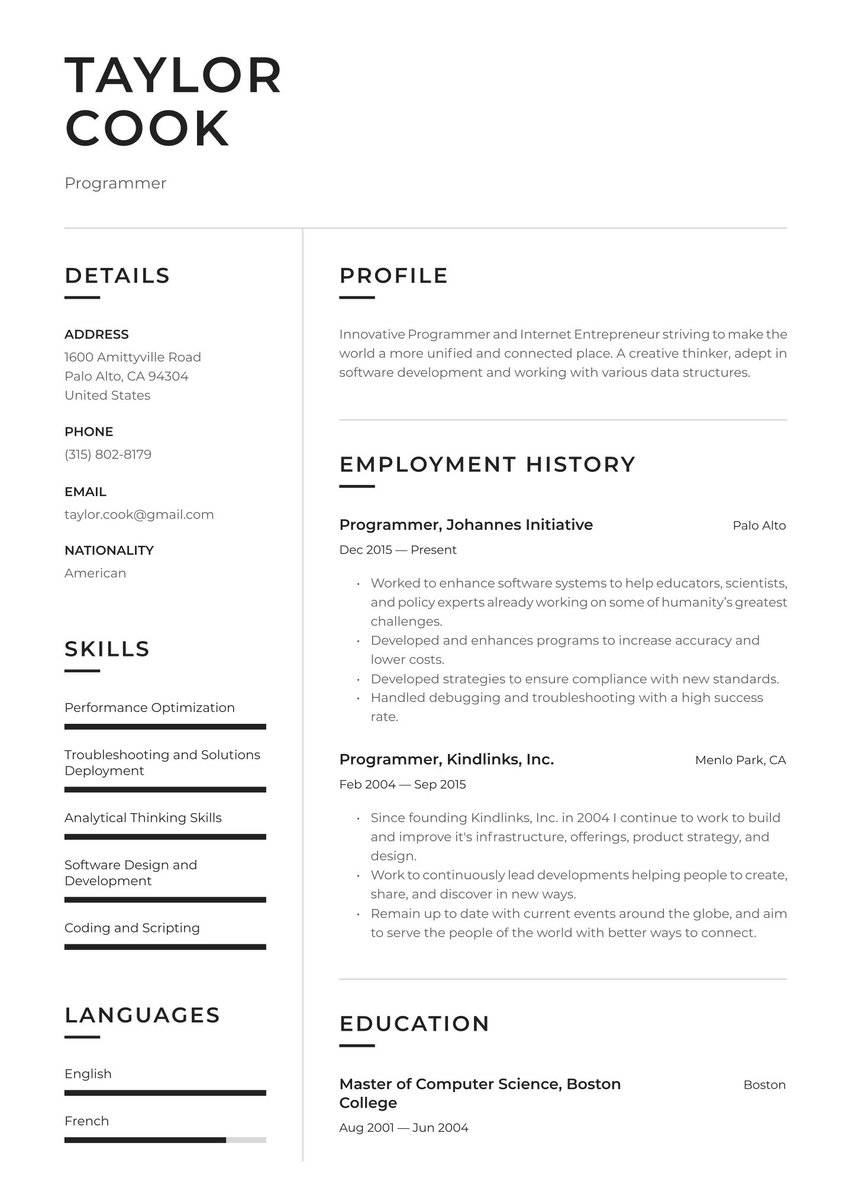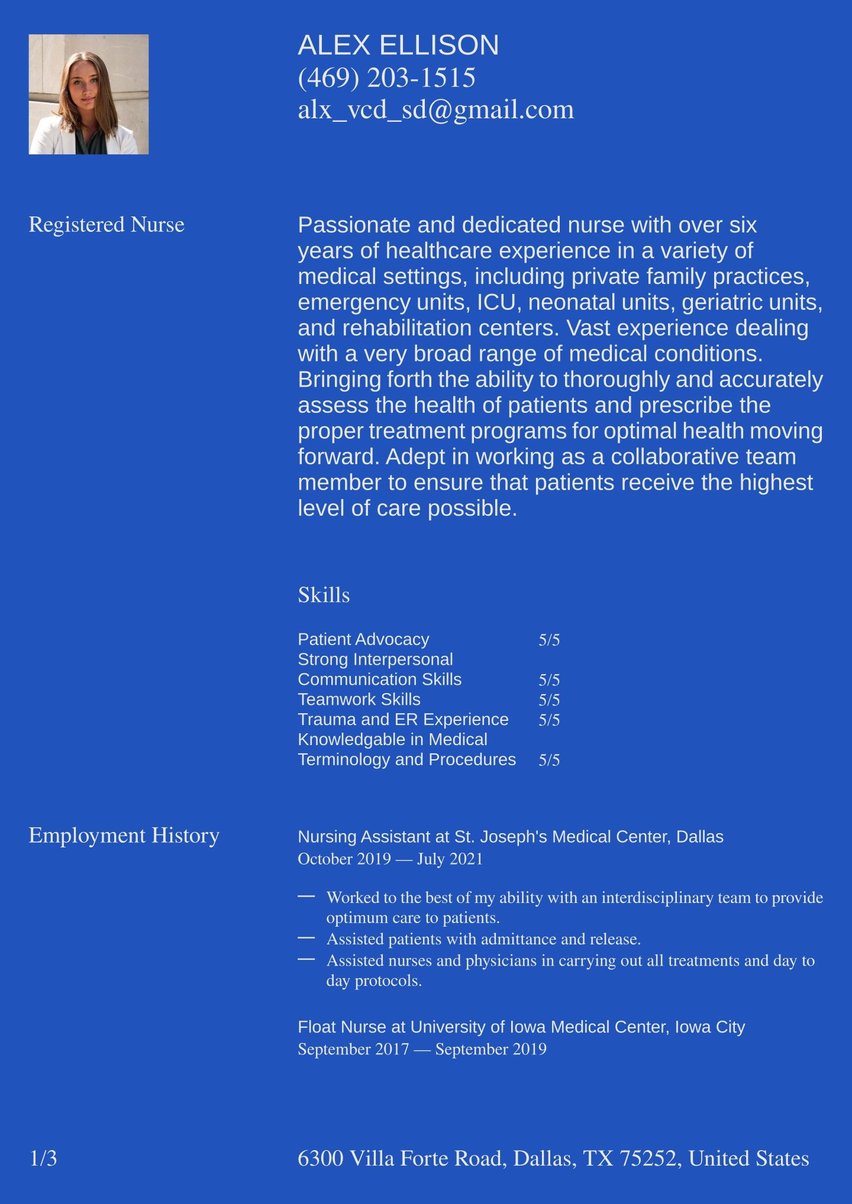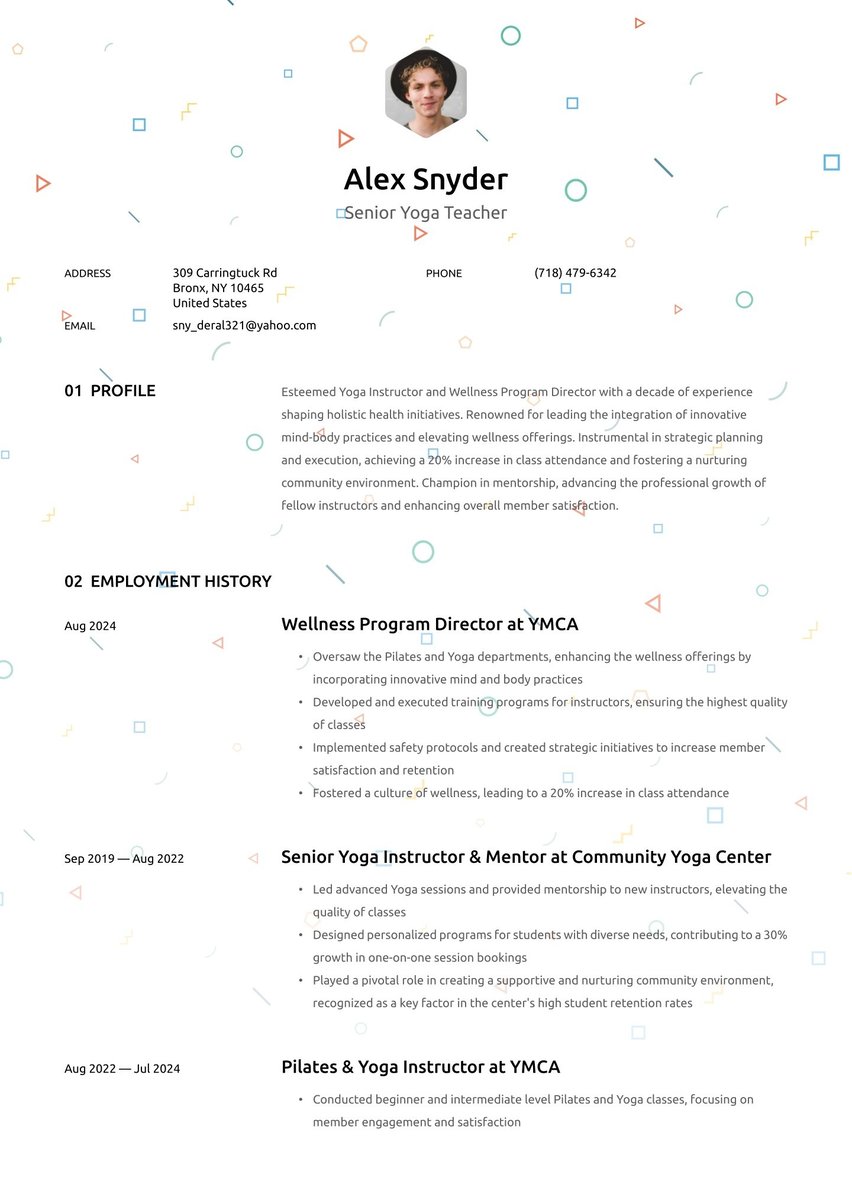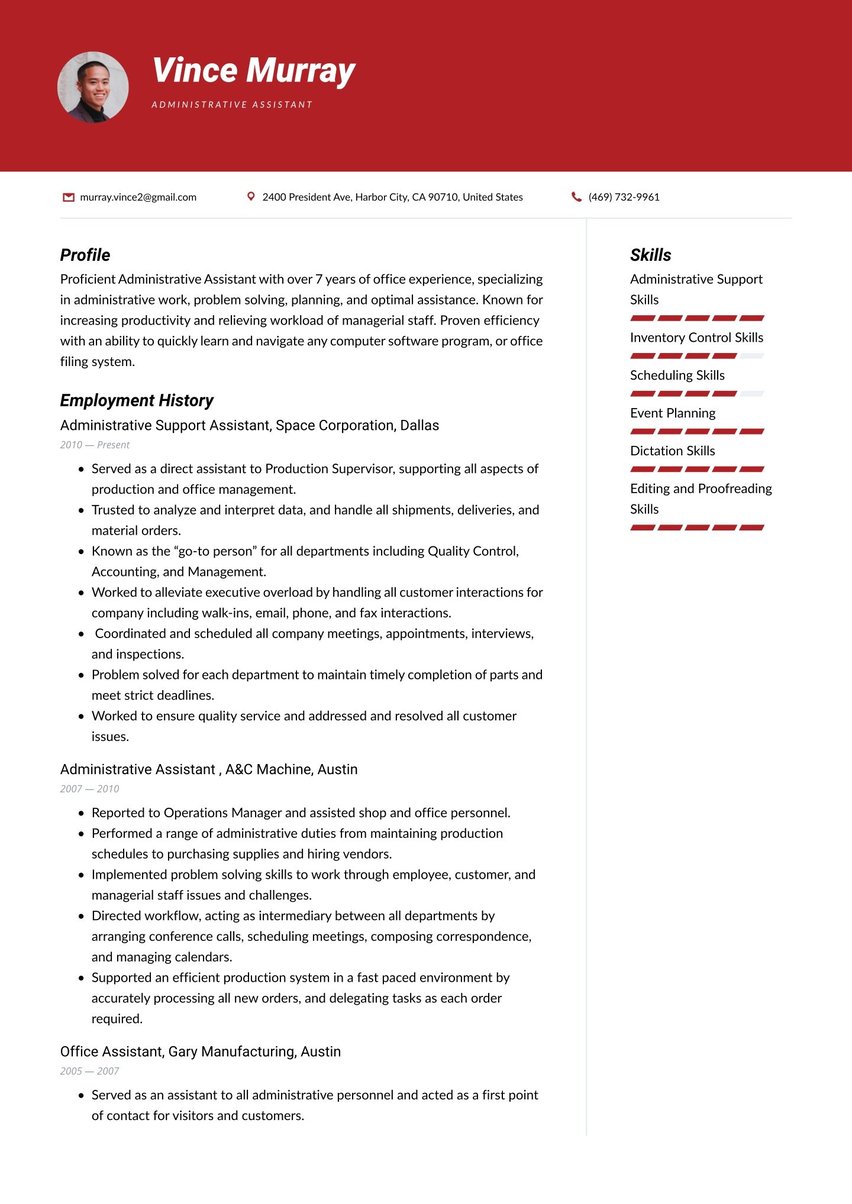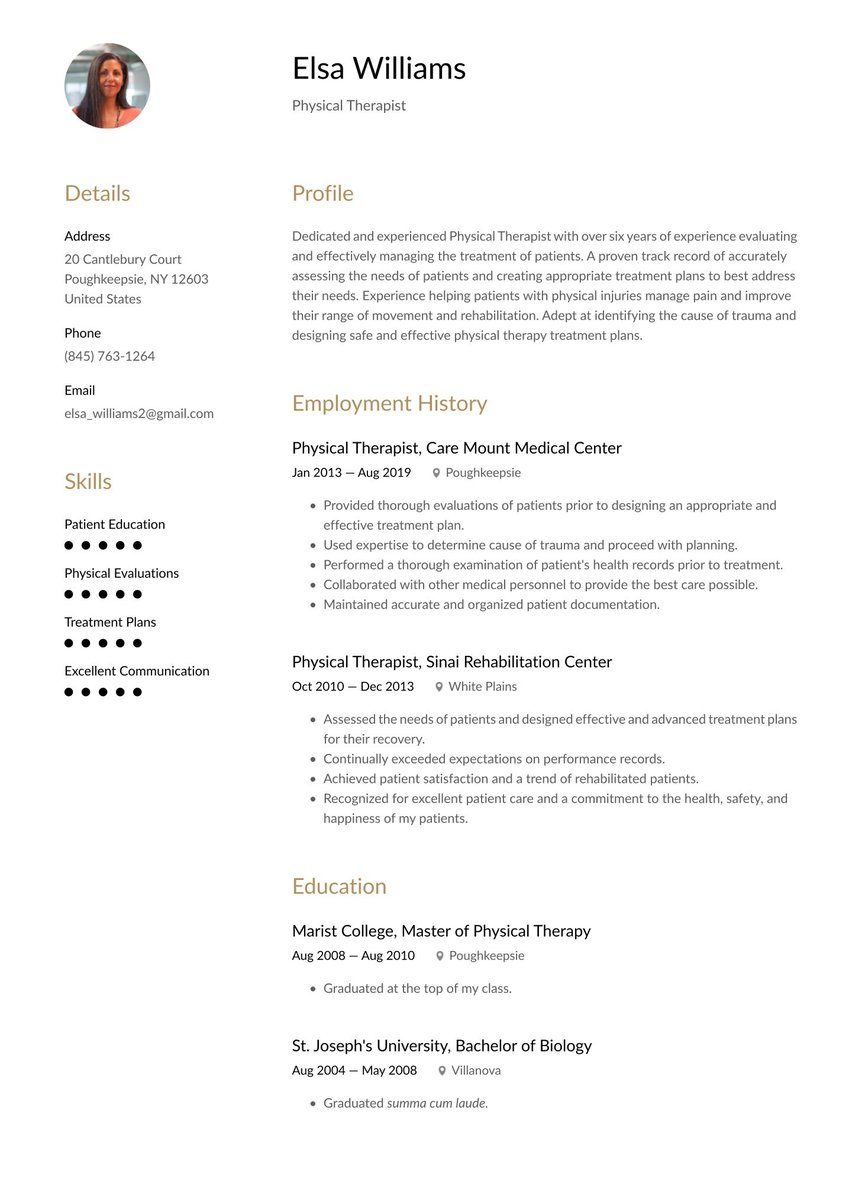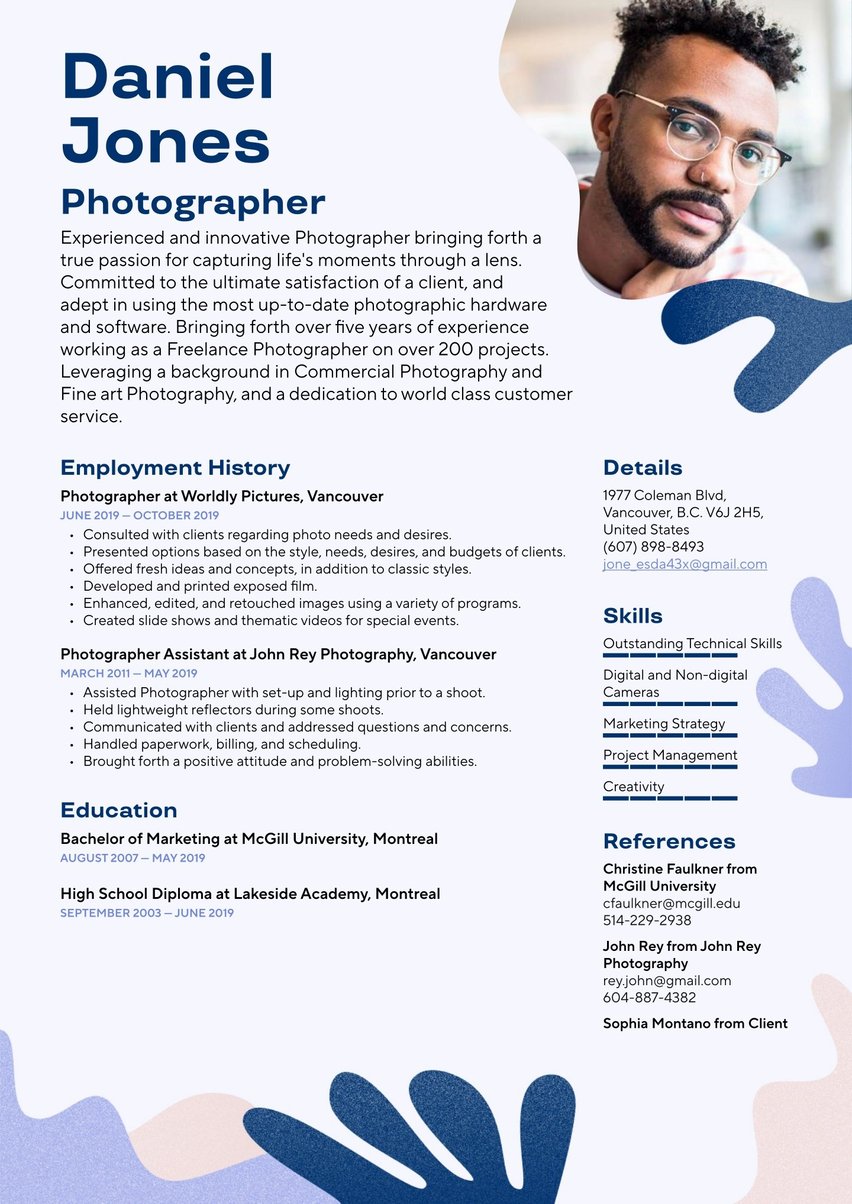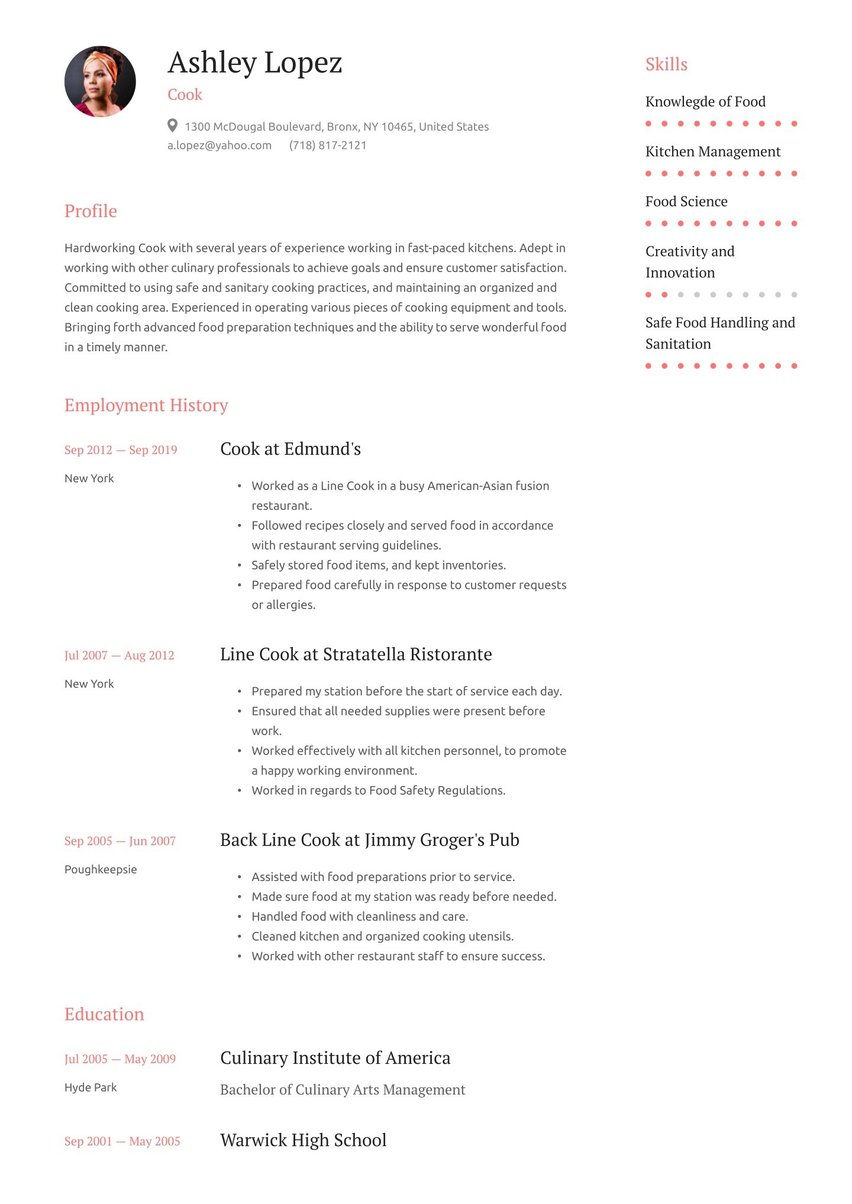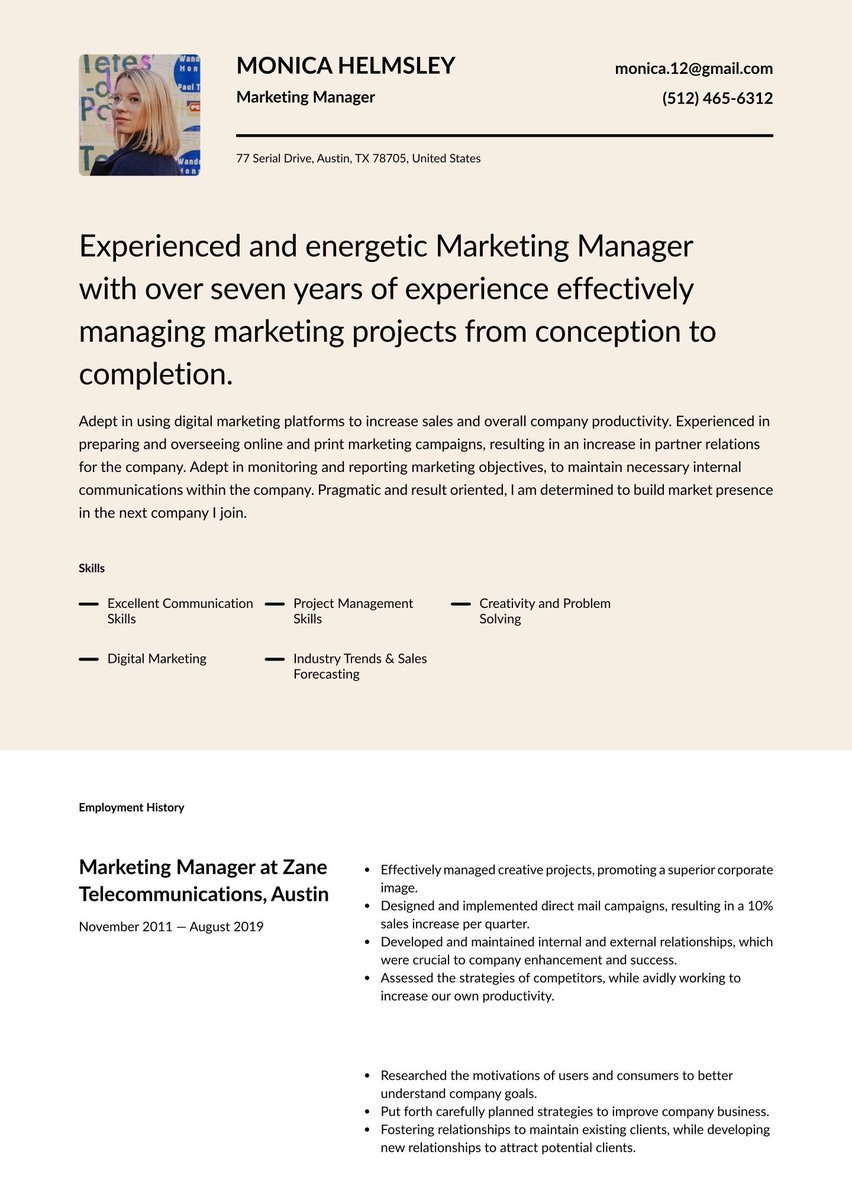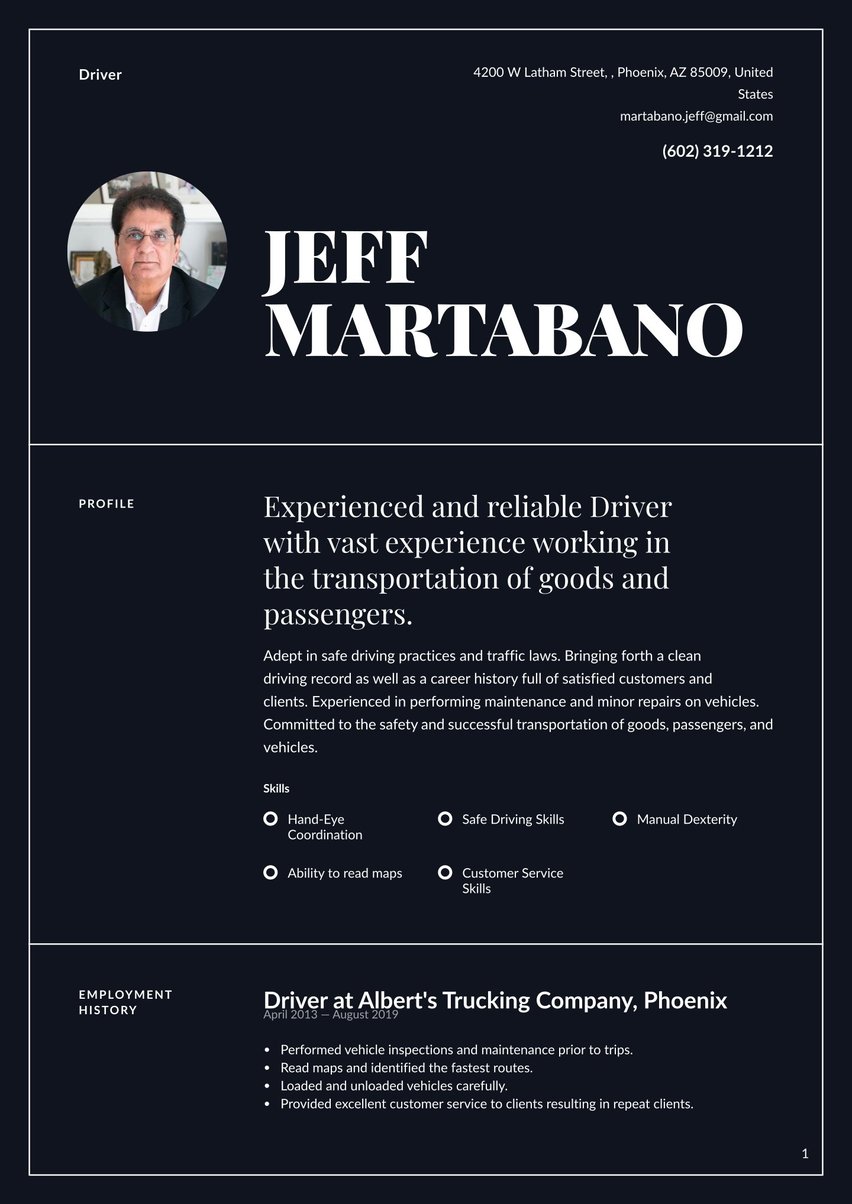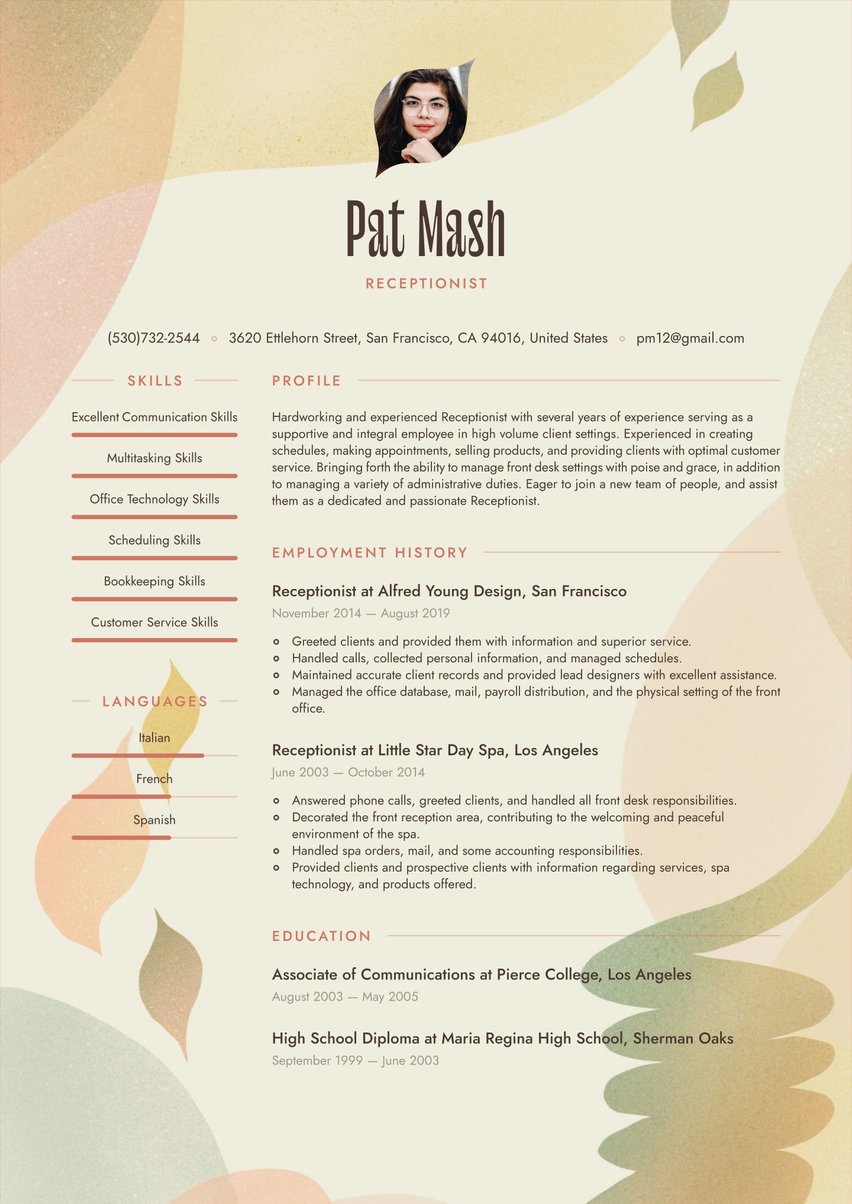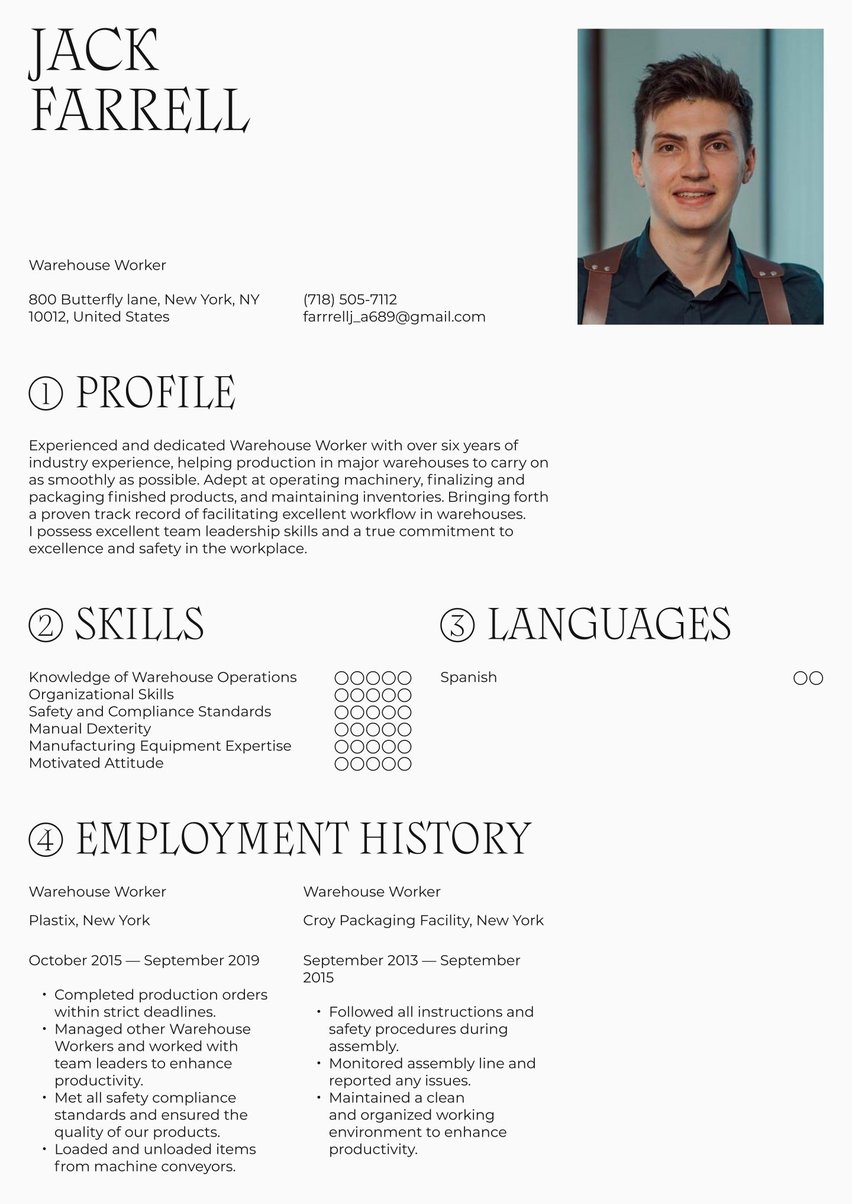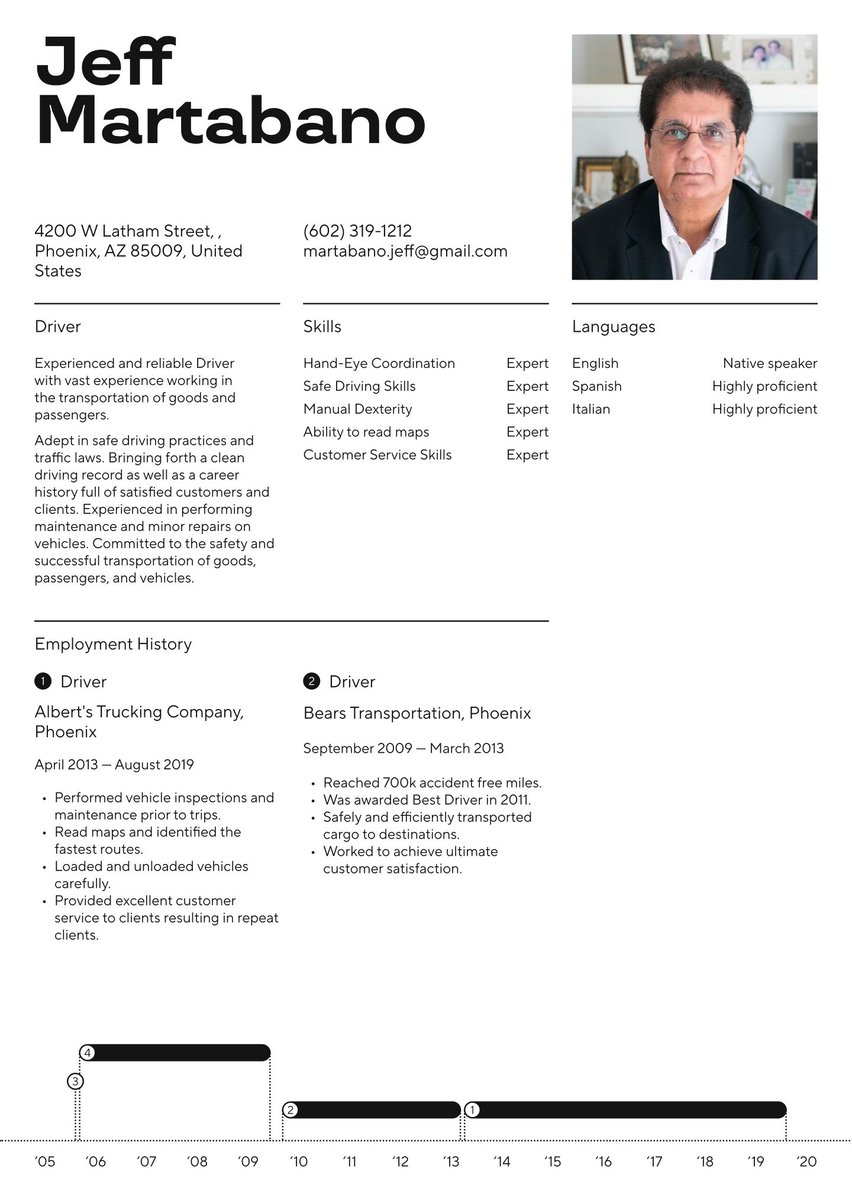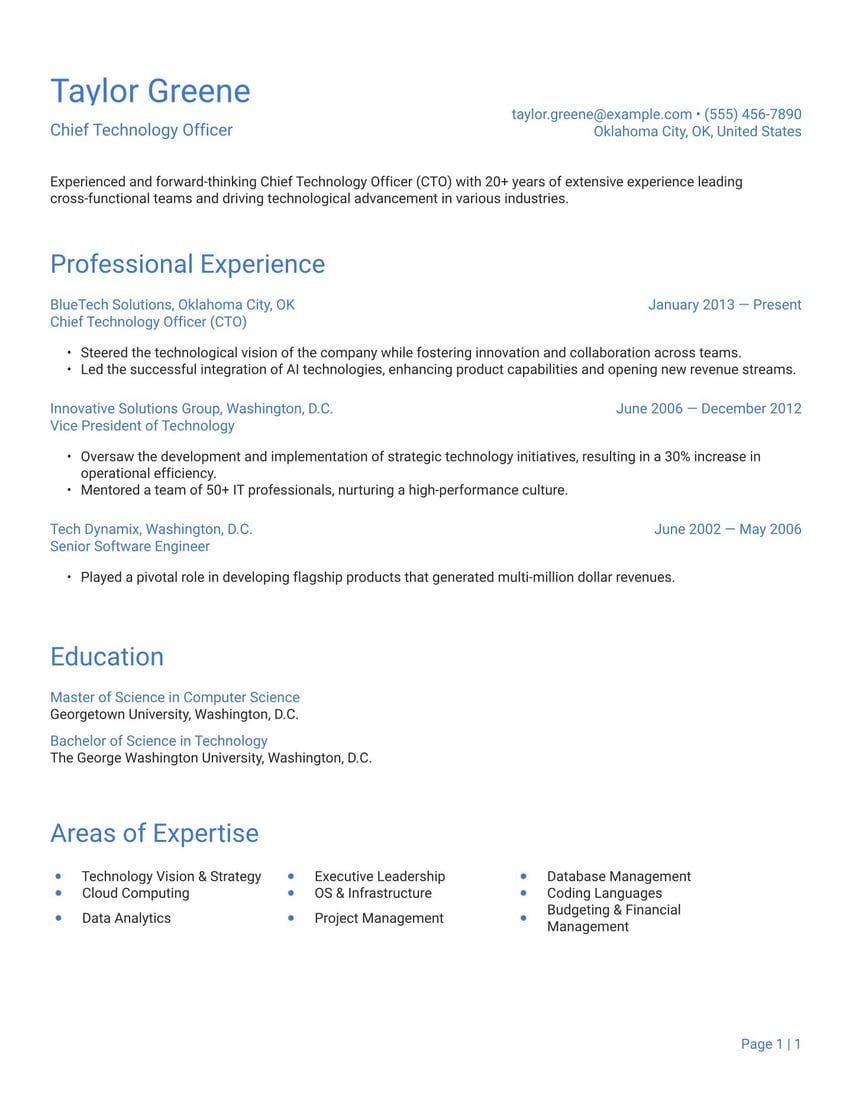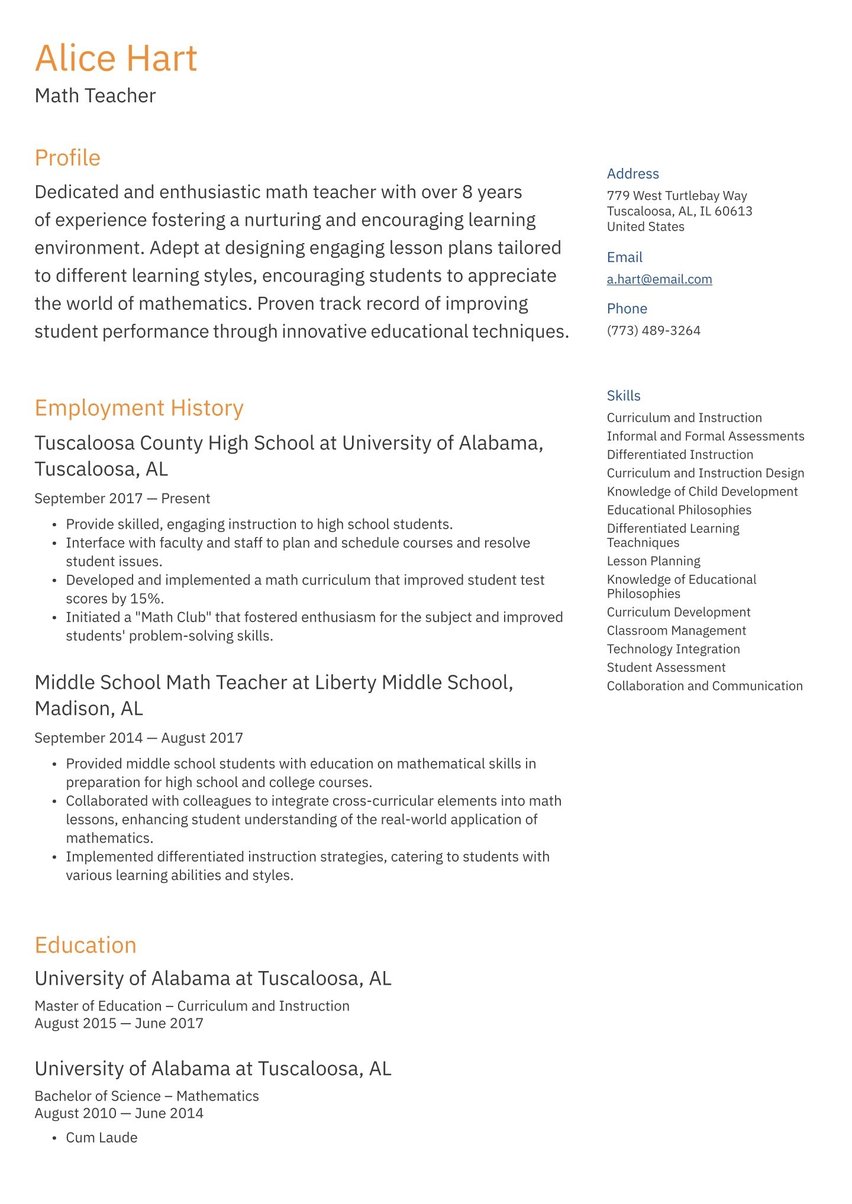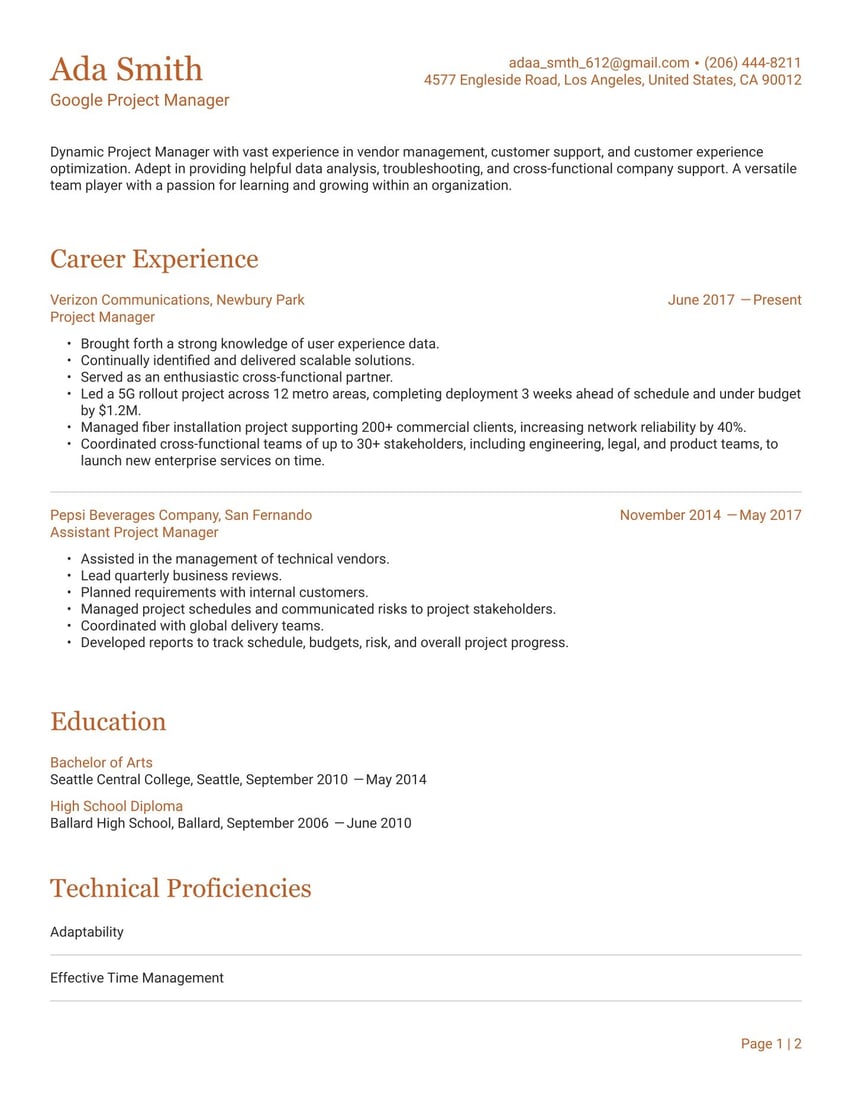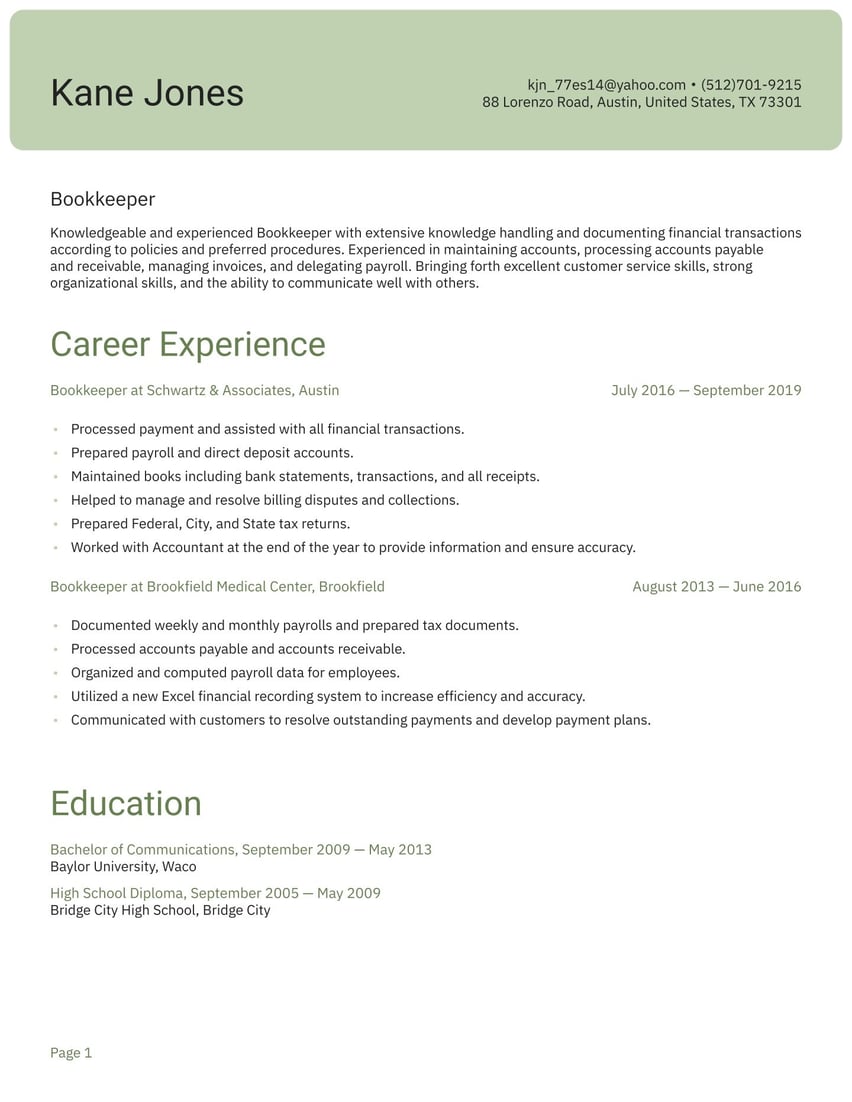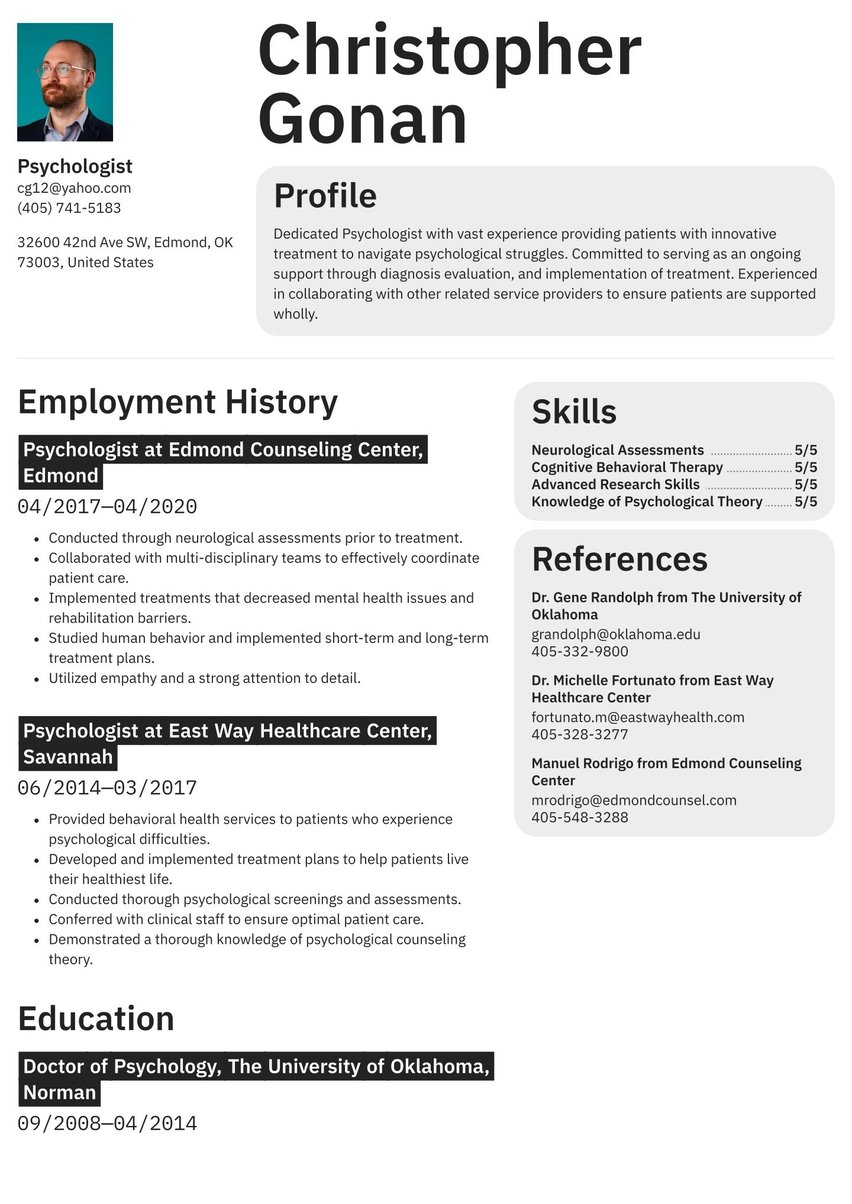12/2010 - 08/2018, Associate Attorney, Madison and Fletcher Attorneys at Law, San Francisco
- Worked with clients to understand their needs and situation.
- Mediated disputes and enforced the proper regulations.
- Counseled clients about the law and legal options.
- Effectively represented clients in criminal and civil court proceedings.
09/2006 - 11/2010, Associate Attorney, Johnson & Levine, LLC, Los Angeles
- Performed adequate research to ensure a deep understanding of cases.
- Prepared legal documents without error and in a timely manner.
- Analyzed laws in relation to the situation of a client.
- Filed briefing, collected evidence, and presented cases to judges and jurors.
- Worked to build and foster trusting relationships with clients.
08/2003 - 05/2006, Juris Doctor, New York Law School, New York
08/1999 - 05/2003, Bachelor of Economics, New York University, New York
- English
- Spanish
- Dutch
- French
- Regulatory Compliance
- Excellent Speaking Skills
- Strong Mediation Techniques
- Family Law
- Immigration Law
As an attorney, you can practice in a lucrative profession that can make a difference. Job opportunities vary extensively in different fields of law, but with the right resume, you can be ahead of the crowd and grab the job of your dreams.
Attorney resume examples by experience level
Strengthen your case with a persuasive attorney resume that showcases your experience, skills, and educational credentials to present the argument that you're the right fit for the role.
Resume guide for an attorney resume
Resume.io provides expert resume guides and resume examples for 500+ professions, along with a powerful, easy-to-use resume builder. Let us help you present the evidence in the best light with an attorney resume that earns favorable judgments.
This resume guide and corresponding attorney resume example will cover the following:
- How to write an attorney resume
- Choosing the right resume format for attorney roles
- How to add your contact information in the header
- Using summaries to make your case
- Adding your legal experience
- Listing your education and credentials
- Picking the right attorney resume design/layout
- What the attorney job market looks like and what salary you can expect
How to write an attorney resume
Just as your briefs follow a format, so should your resume. Before you dig in, here are the components that all attorney resumes need:
- The resume header
- The resume summary (aka profile or personal statement)
- The employment history section
- The resume skills section
- The education section
Whether you plan to argue cases or research arcane tax law, you need to be a great communicator who can code-switch depending on the situation. A standout attorney resume blends the right tone with a message for success. Just as you tell stories when you present arguments, you are telling a story here: the tale of your success.
Tap into your network to research the firms you are interested in and find out what they value. Match your tone and linguistic style to the firm’s culture and environment whenever possible.
A compelling resume contains the argument for your employment. Follow this winning formula:
- Focus on accomplishments rather than job duties. Anyone can list the tasks they were given, but you should set yourself apart by showcasing your specific achievements.
- Know your audience and customize your message to each employer to build the best case.
- Create a memorable visual image by choosing a resume template that reflects your style and professionalism.
- Optimize your language with targeted keywords and phrases to avoid having your resume filtered out by ATS screening software.
Optimize for the ATS
Applicant tracking systems, or ATS, are software programs used by companies to post jobs and collect and manage applications. Typically, a recruiter uses the ATS to advertise the job, review resumes, and move candidates through the interview process. Some companies may use advanced ATS features to help scan and rank resumes based on how well they match the job posting.
For the best chance of success, strategically use keywords and phrases, place your contact information clearly, and highlight your skills. Part of law training is analysis, so use your ability to break down job listings into the key skills the recruiter seeks.
For example, an attorney job posting may list the following requirements:
- “Juris Doctor”
- “10+ years of experience”
- “Corporate law”
- “Strong communication skills”
Your resume summary, when integrating the keywords, could read:
“Experienced attorney with 10 years of experience and a Juris Doctor from Harvard University. Extensive experience in corporate law for enterprise organizations, leveraging exceptional communication skills.”
Choosing the right resume format for an attorney
Typically, the reverse chronological order resume format is your best bet when writing an attorney resume. Employers want to see your most recent experience first when they peruse your employment history section.
There are cases, however, where you may want to use a different style. If you have worked on complicated technical cases or have very detailed knowledge in a niche field, a functional resume may showcase your skills better. This style offers an expanded skills section where you can explain your deep proficiency or highlight your cases. A hybrid or combination format blends aspects of both chronological and functional formats.
Explore the many resume templates in our resume builder and select the format that best suits you. We’ve got plenty of versions of the three formats available as resume examples. When it comes to design, a professional layout is a great fit for attorney resumes.
Include your contact information
A distinctive header serves as your resume’s business card, letting you prominently display your contact information. This ensures it gets noticed right away and can easily be found when hiring managers want to get in touch.
A strong attorney resume header should include:
- Full name & title. List your first and last name and the title of the role you are pursuing.
- Professional email address. Use a clean format like firstname.lastname@gmail.com. Avoid using a quirky, unprofessional email address.
- Phone number. Add the best phone number to reach you, and make sure you’ve got a professional outgoing voicemail greeting.
- Location. Just list your city and state; leave off your full home address (both outdated and unsafe) and your zip code (not necessary). If you’re willing to relocate, you can note that here as well.
- LinkedIn. If you have an active, relevant LinkedIn profile that shows off your legal network and expertise, link it here.
Don’t include:
- Date of birth. This isn’t necessary and could potentially put you at risk of age discrimination.
- Personal details. There is no need for your resume to include your marital status, social security number, passport number, etc.
- Photo or headshot. It’s not customary for attorney resumes in the US to include a photo.
Andrew Grey
Attorney
San Francisco, CA
(415) 803-7127
grey.andrew11@gmail.com
Andrew Grey
2471 42nd Avenue,
San Francisco, CA 94116
United States
Make use of a summary
The resume summary is your chance to let your personality shine. This short synopsis of your career —3 to 4 sentences—can win over recruiters from the start. The summary (also known as the profile or personal statement) is a great opportunity to distinguish yourself.
Attorneys are expected to use concise, convincing language to communicate, argue, and persuade. This section is the main opportunity on your resume to show these talents. As an attorney, you need many other soft skills, including interpersonal skills. Writing about your professional personality and achievements allows you to show them off. Your breadth and depth of knowledge of the law should also be on display. Do this by using action verbs in the simple past or present tense.
Don’t simply reiterate or recap what’s on your resume; instead, present an overarching narrative of who you are and what you will bring to the firm. This is not the time to be modest! Demonstrate the unique value you’ve brought to past employers. For example, “Consistently achieved favorable case outcomes while earning recognition for exceptional client communication and legal expertise.”
Need inspiration for your summary? View our related legal resume samples and writing guides:
You can find adaptable attorney resume example summaries below:
Emerging Lawyer with foundational experience in legal research, case preparation, and a growing understanding of family and immigration law. Exhibits a strong commitment to justice, with a talent for public speaking and meticulous document review. Eager to apply mediation skills and regulatory knowledge in a dynamic legal environment, while continuing to learn from practical courtroom experiences.
Experienced and innovative Lawyer with a passion and dedication to justice. Highly organized, and skilled in public speaking. Bringing forth a proven track record of achieving favorable outcomes for clients. Adept in preparing for trials, reviewing documents, and effectively presenting cases in court. A strong leader who works well under pressure, and understands the complexities of the legal system.
Esteemed Lawyer with a distinguished career in providing expert legal consultation and advocacy in high-stakes environments. Renowned for leading successful outcomes through advanced regulatory compliance strategies and expert litigation. Instrumental in mentoring emerging legal talent, fostering professional development, and driving strategic legal consulting. Recognized for exceptional leadership in mediation and complex case management, with a deep understanding of family and immigration law.
Outline your attorney work experience
Start your work experience section by listing your current or most recent job first then work your way back. Only go back the last 10-15 years as older experience is likely less relevant and can show your age.
Underneath each employer heading, add concise bullet points—omitting pronouns like “I” or “my”—that reflect your unique achievements. Start each bullet with a dynamic verb.
Don’t simply list job duties. Instead, demonstrate tangible outcomes and quantify whatever you can. For instance, it’s easy to write attorney resume bullets like:
- "Worked with clients to understand their needs and situation.”
- “Mediated disputes and enforced the proper regulations.”
- “Counseled clients about the law and legal options.”
While these are certainly parts of an attorney’s job, nothing about these statements shows off your professional achievements. Replace these vague phrases with results-based points. Did you win a big case? Save your client thousands of dollars in taxes? Arbitrate a huge deal? Write briefs for a judge? That is what recruiters want to see on your resume instead of just a list of your responsibilities.
Check out these reworked versions of the above bullet points:
- "Collaborated with 50+ clients annually to assess their legal needs, achieving a 95% client satisfaction rate.”
- “Mediated 30+ disputes, ensuring 100% compliance with regulations and reducing potential litigation by 25%.”
- “Advised clients on legal options across 100+ cases, with 80% resulting in favorable resolutions or settlements.”
Take a look at the attorney employment history resume sample below:
Associate Attorney at Madison and Fletcher Attorneys at Law, San Francisco
December 2010 - August 2018
- Worked with clients to understand their needs and situation.
- Mediated disputes and enforced the proper regulations.
- Counseled clients about the law and legal options.
- Effectively represented clients in criminal and civil court proceedings.
Associate Attorney at Johnson & Levine, LLC, Los Angeles
September 2006 - November 2010
- Performed adequate research to ensure a deep understanding of cases.
- Prepared legal documents without error and in a timely manner.
- Analyzed laws in relation to the situation of a client.
- Filed briefing, collected evidence, and presented cases to judges and jurors.
- Worked to build and foster trusting relationships with clients.
How to write an attorney resume with no experience
The vast majority of attorney roles require a law degree, which in the US is a Juris Doctor (JD). In some other countries, the equivalent of a bachelor’s degree will suffice. That said, it’s unlikely for someone with truly no experience in law to land an attorney position.
That said, if you’re a recent graduate looking for your first legal job there are ways to call out your transferable skills and passion for the law and land your dream job.
First, focus on your educational background. This is where you’ve learned most of what you know about legal processes and procedures, so show it off. Share, too, any additional training or coursework you’ve completed. For instance, perhaps you earned a paralegal certificate before heading to law school.
You can also showcase past experiences that transfer well to attorney work. If you worked as a paralegal or volunteered at a low-cost legal aid organization, detail it on your resume. The same goes for membership in relevant clubs or societies during your time at school. All of this will also show your passion for the field.
Include the relevant key skills that make you a great attorney
Combine hard and soft skills in your resume’s skills section. This helps showcase your comprehensive expertise. Hard skills are those that are measurable and demonstrable, such as specific legal knowledge (like employment law or tax law), software (like e-discovery platforms), and knowledge of regulations (like SEC).
However, soft skills like communication skills, negotiation, and critical thinking will also help you stand out from the crowd of attorney job applicants.
Our resume builder provides several pre-written skills to choose from along with proficiency ranges you can set. You can also write in additional skills if you’d like.
Here’s what the skills box looks like in our attorney resume template.
Key Skills and Proficiencies
The skills section, however, isn’t the only place to list your skills. Make a strong argument by including them throughout your resume, most notably in the summary and experience sections. Take it a step further and add even more credibility by providing specific and quantifiable achievements.
For instance, you can highlight your:
- Problem-solving skills by describing challenging cases you’ve won
- Client relationship skills by detailing how you’ve successfully counseled clients and provided legal advice
- Negotiation skills by demonstrating how you argued—and won—important cases
The job description is a great place to find the most important skills to include.
Detail your education & relevant legal certifications
The education section is pretty straightforward for attorney positions. Start by listing your educational achievements in reverse chronological order. Since you likely have a JD and a bachelor’s degree, there’s no need to list anything from high school.
However, don’t stop there. This is a great section to add internships, training, and anything else that helps bolster your expertise. For example:
- Internships. Include relevant internships, externships, or summer associate positions.
- Training and relevant work. Legal training, volunteer or pro bono work, clerkships, or law review work.
- Associations. Industry or professional associations like the American Bar Association or your state bar association.
Juris Doctor, New York Law School, New York
August 2003 - May 2006
Bachelor of Economics, New York University, New York
August 1999 - May 2003
Pick the right resume layout and design for an attorney resume
An elegant and easy-to-read design will reflect well on you as a professional attorney. You want to make your professionalism and judgment clear by submitting a resume that is streamlined and well-written.
You may be tempted to add design flourishes, but recruiters are much more impressed with a legible resume clean of distracting colors, fonts, or graphic elements. Keep it neat and clean. Use clearly marked sections with bold titles and separate your experience into bullet points, which are much easier to quickly read than long paragraphs. Make sure you have ample balance between white space and text.
While there isn’t a perfect shortcut to crafting a quality resume, there are ways to make it easier, like our expert-tested resume templates. Let us take care of the formatting and design for you so you can focus on the content.
Attorney text-only resume example
Profile
Experienced and innovative Lawyer with a passion and dedication to justice. Highly organized, and skilled in public speaking. Bringing forth a proven track record of achieving favorable outcomes for clients. Adept in preparing for trials, reviewing documents, and effectively presenting cases in court. A strong leader who works well under pressure, and understands the complexities of the legal system.
Employment history
Associate Attorney at Madison and Fletcher Attorneys at Law, San Francisco
December 2010 - August 2018
- Worked with clients to understand their needs and situation.
- Mediated disputes and enforced the proper regulations.
- Counseled clients about the law and legal options.
- Effectively represented clients in criminal and civil court proceedings.
Associate Attorney at Johnson & Levine, LLC, Los Angeles
September 2006 - November 2010
- Performed adequate research to ensure a deep understanding of cases.
- Prepared legal documents without error and in a timely manner.
- Analyzed laws in relation to the situation of a client.
- Filed briefing, collected evidence, and presented cases to judges and jurors.
- Worked to build and foster trusting relationships with clients.
Skills
- Regulatory Compliance
- Excellent Speaking Skills
- Strong Mediation Techniques
- Regulatory Compliance
- Family Law
- Immigration Law
Attorney job market and outlook
Growth in jobs for attorneys in the next decade is expected to be 5%, in line with the occupational average, according to the U.S. Bureau of Labor Statistics (BLS). The job market for new law graduates has been robust in recent years, the National Association of Law Placement reports. Almost 93 percent of 2023 law graduates found full-time, long-term employment—the highest rate ever recorded.
According to the latest American Bar Association data, 52.7 percent of new law school graduates were hired by large private firms (1–500+ employees). Another 11.1 percent went into government work, 9.5 percent accepted clerkships, and business and industry accounted for 7.6 percent. Public interest law, solo practice, and education rounded out the legal employment sectors.
What type of salary you can expect as an attorney
Attorneys typically earn an annual salary. Per the BLS, the median annual salary for attorneys is $145,760. The highest paid industry is the federal government at a median of $166,030. Legal services came in at $137,350, local government at $117,070, and state government at $100,670.
According to Money Inc., the highest-paid types of attorneys are bankruptcy lawyers, family lawyers, tax attorneys, corporate attorneys, and patent attorneys.
Key takeaways for building an attorney resume
Attorneys or lawyers have common foundational skills that are essential to highlight on a resume, such as in-depth knowledge of the law, the ability to present evidence and argue a case, and a keen eye for research. These skills are crucial in creating a winning attorney resume.
Start your attorney job search with a resume builder, but why stop there? With resume.io’s 18 powerful tools, you can search for jobs, track your journey, prepare for interviews, and negotiate salaries—all with our all-inclusive career toolkit at your fingertips.


.jpg)

.jpg)





